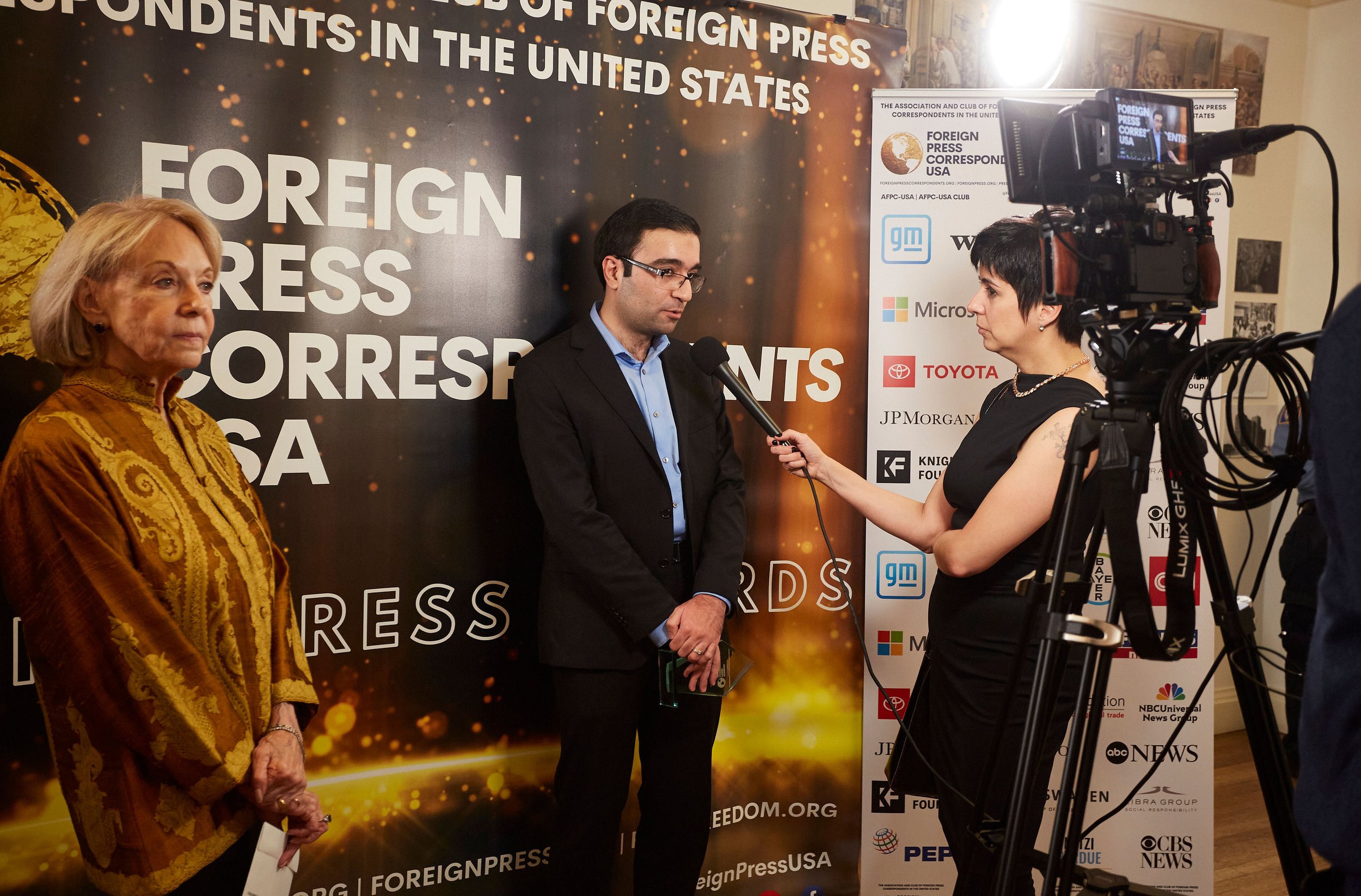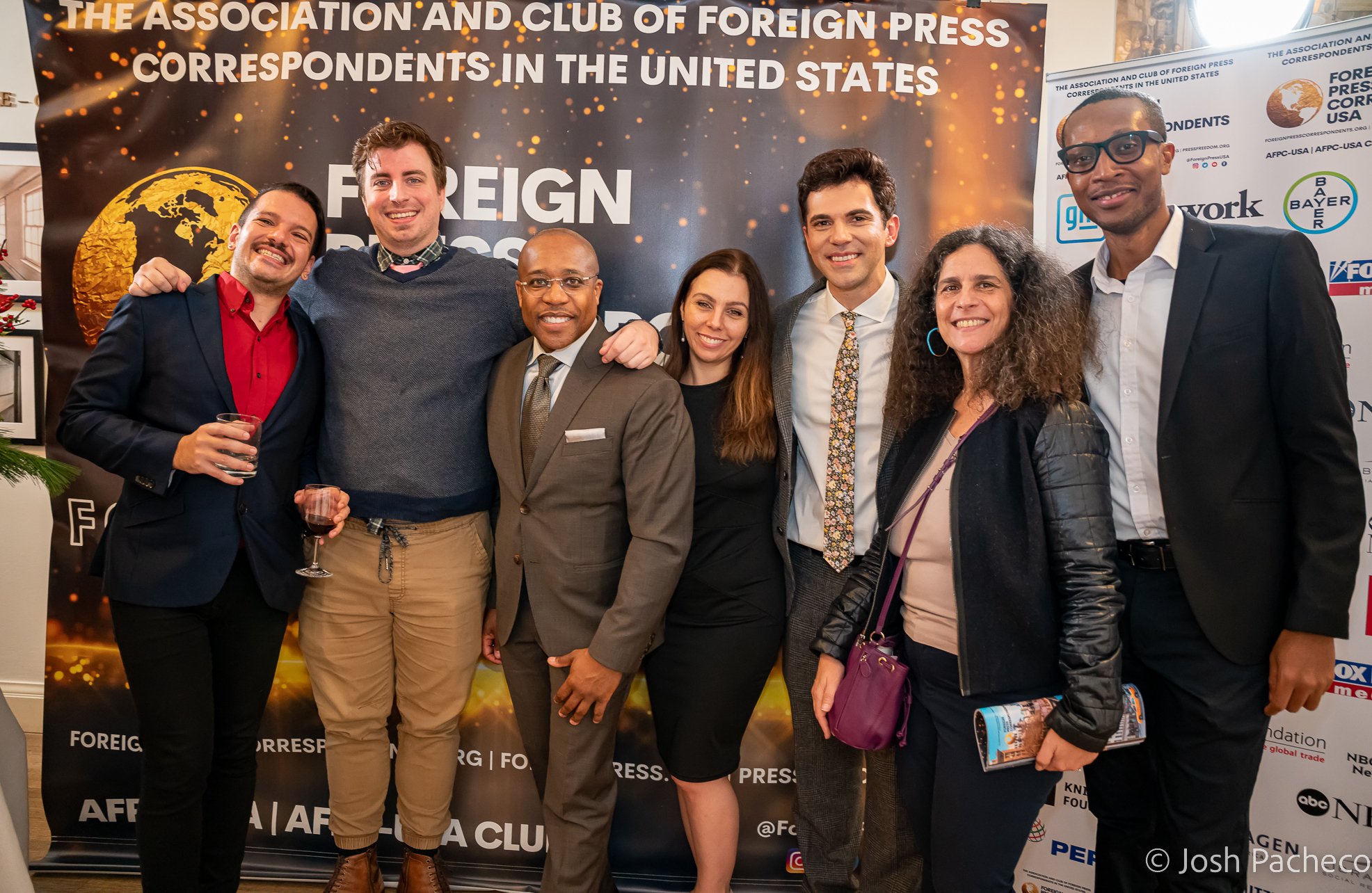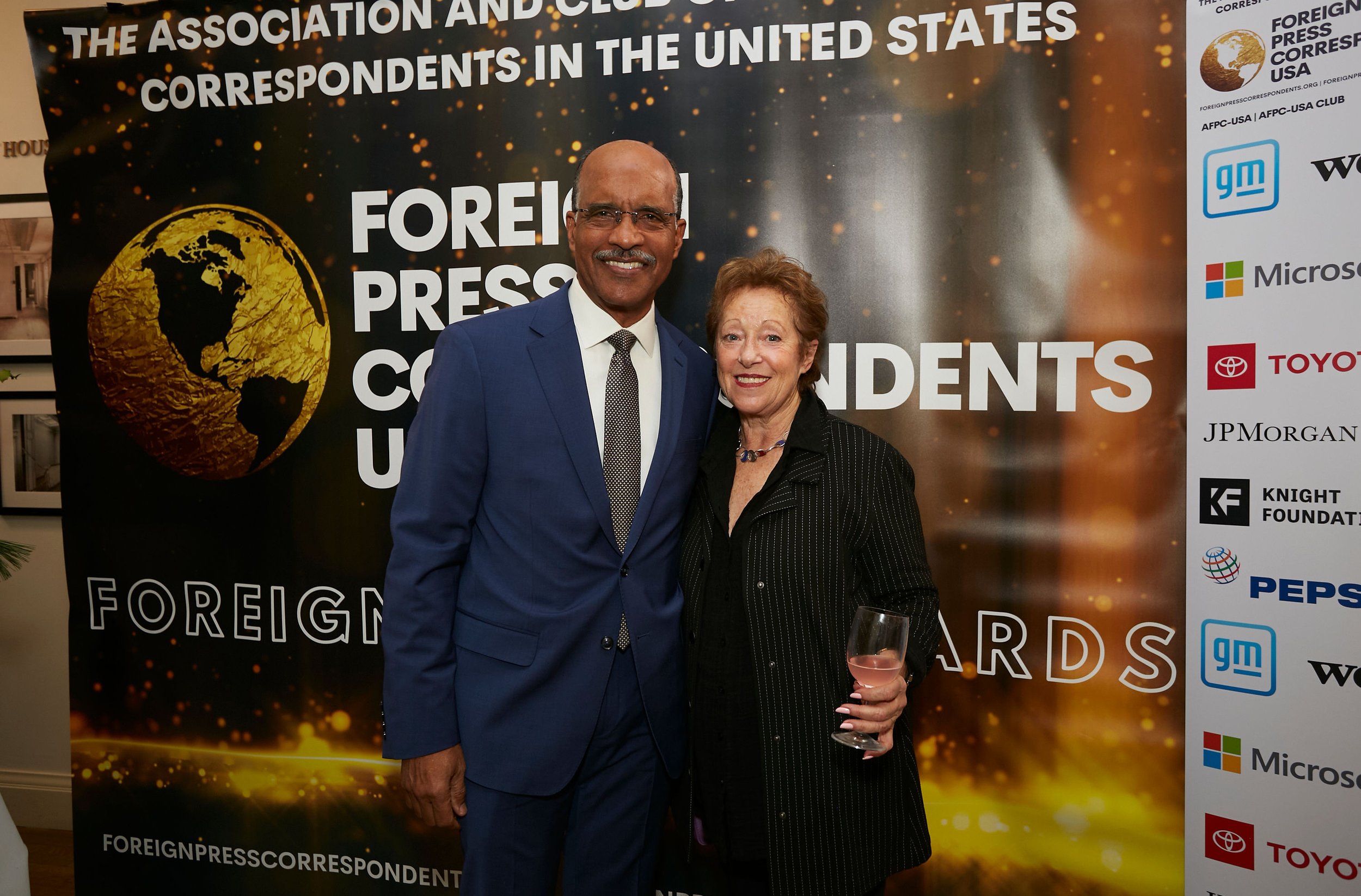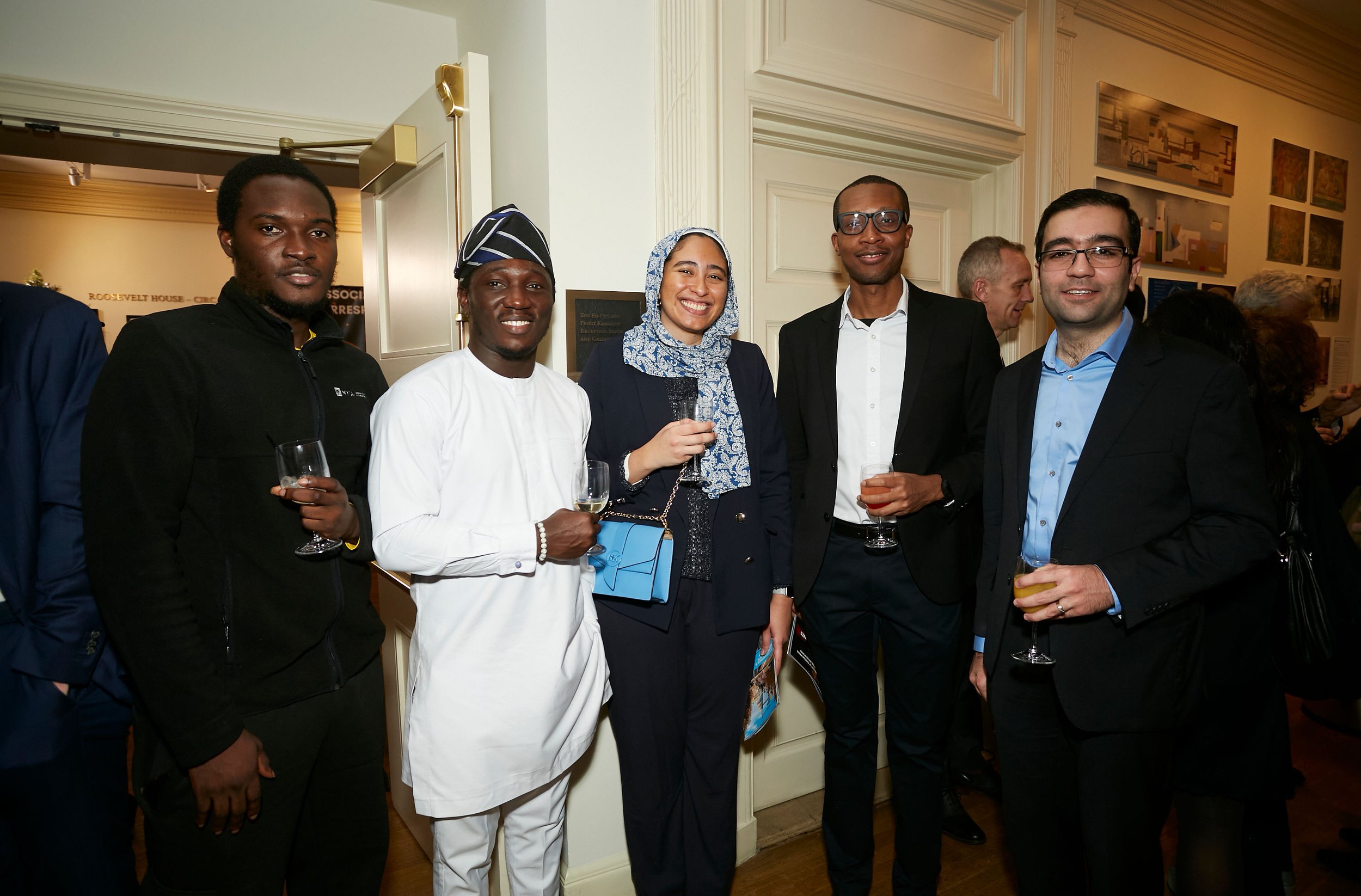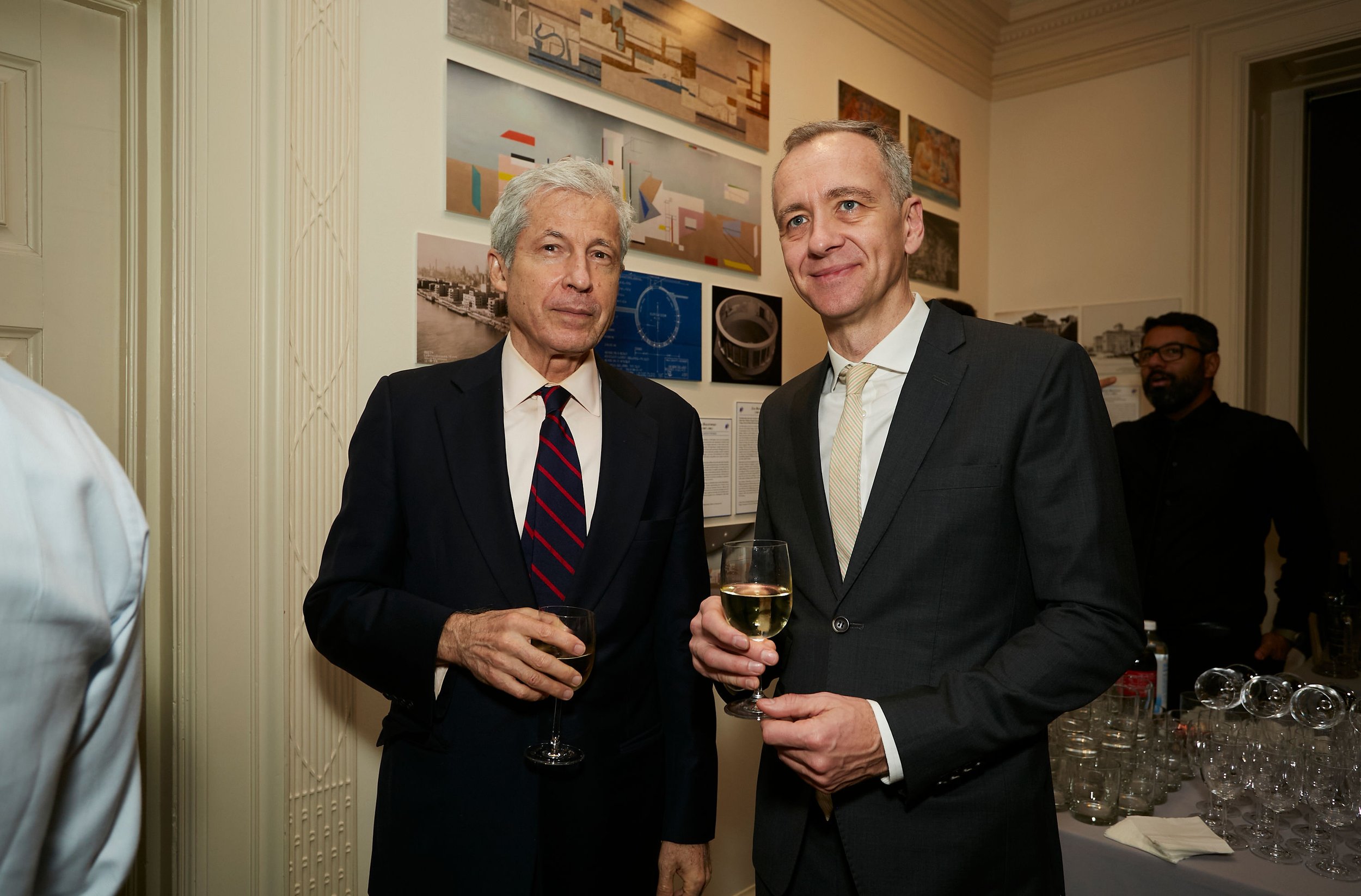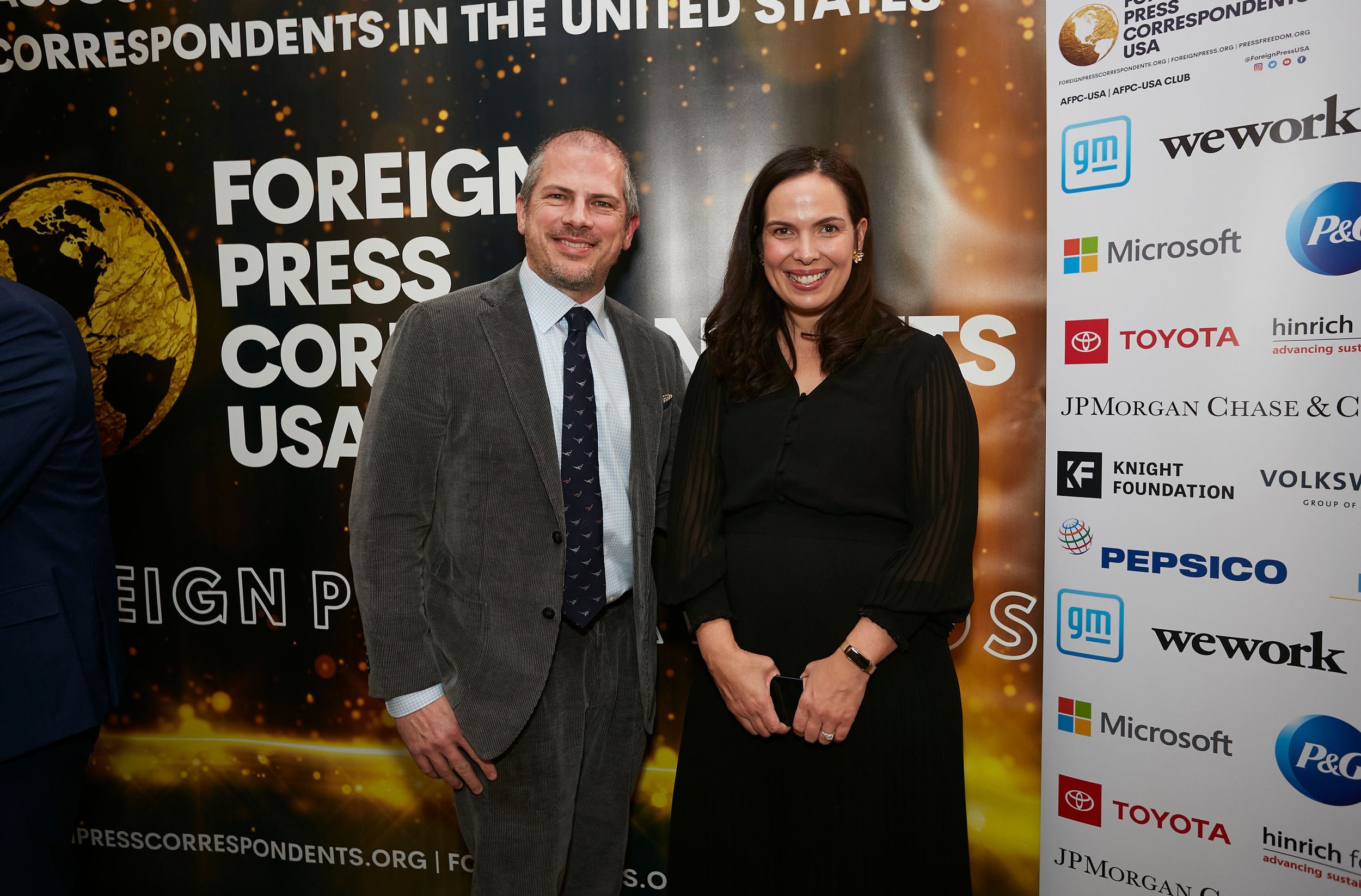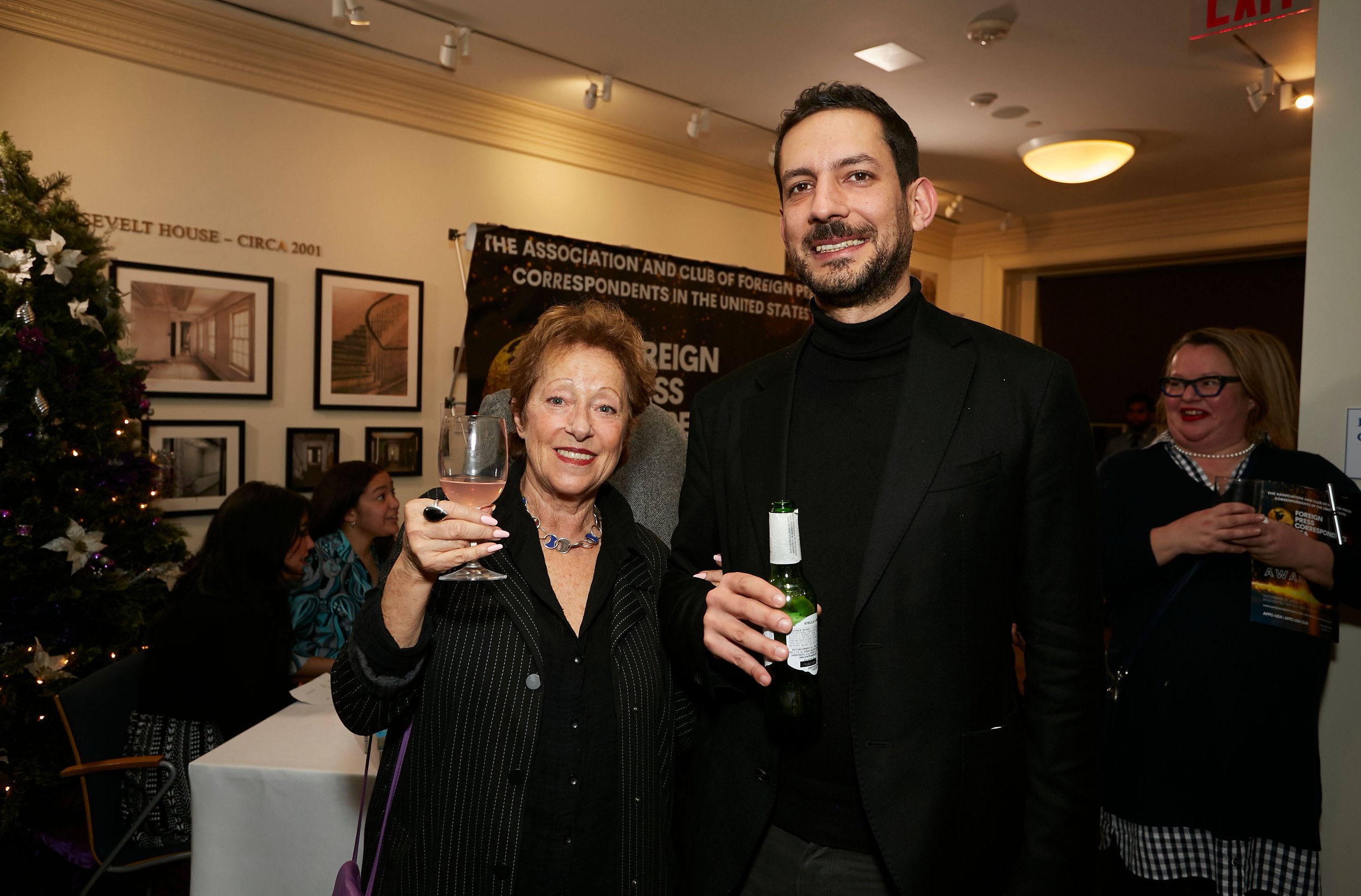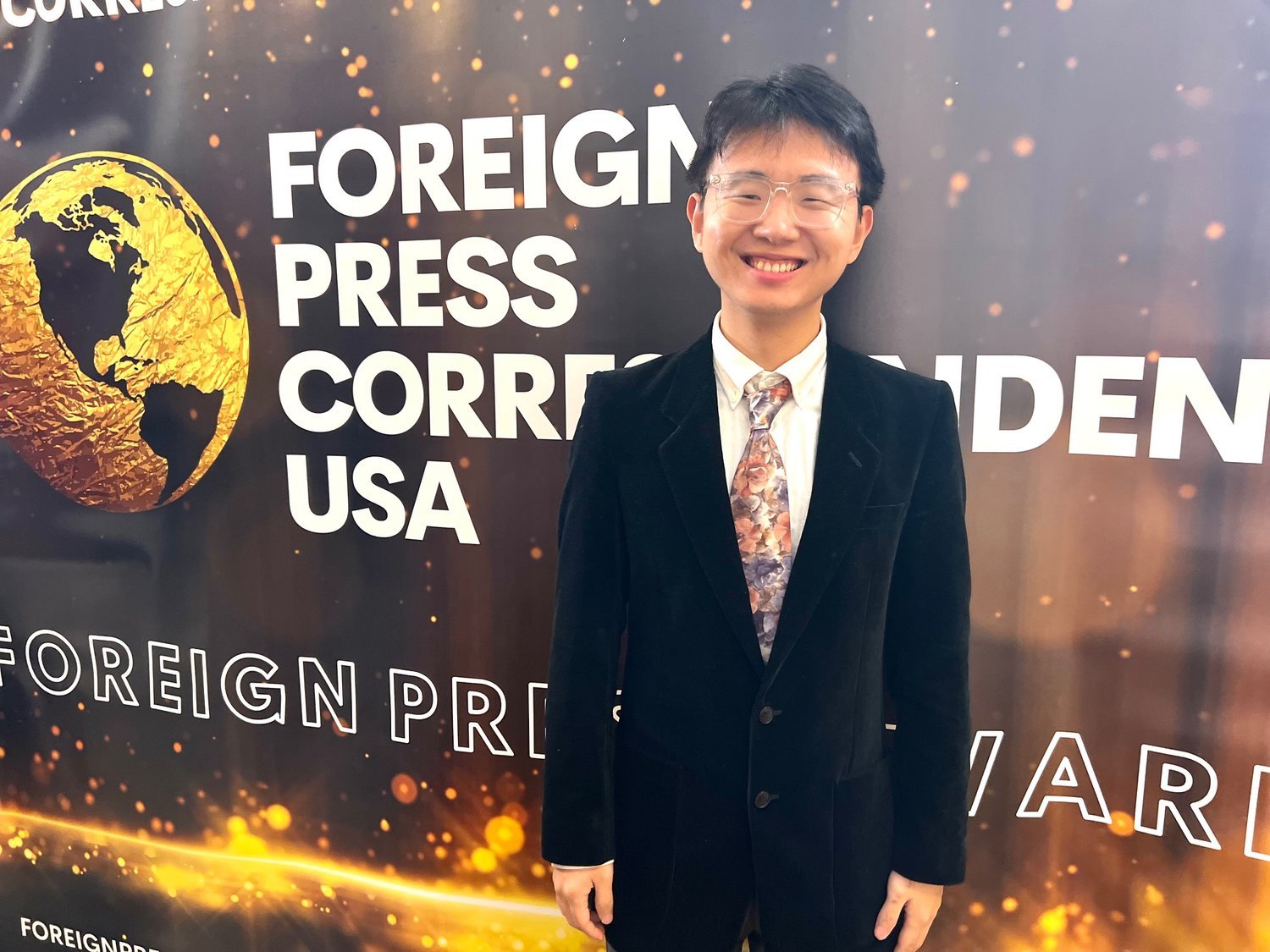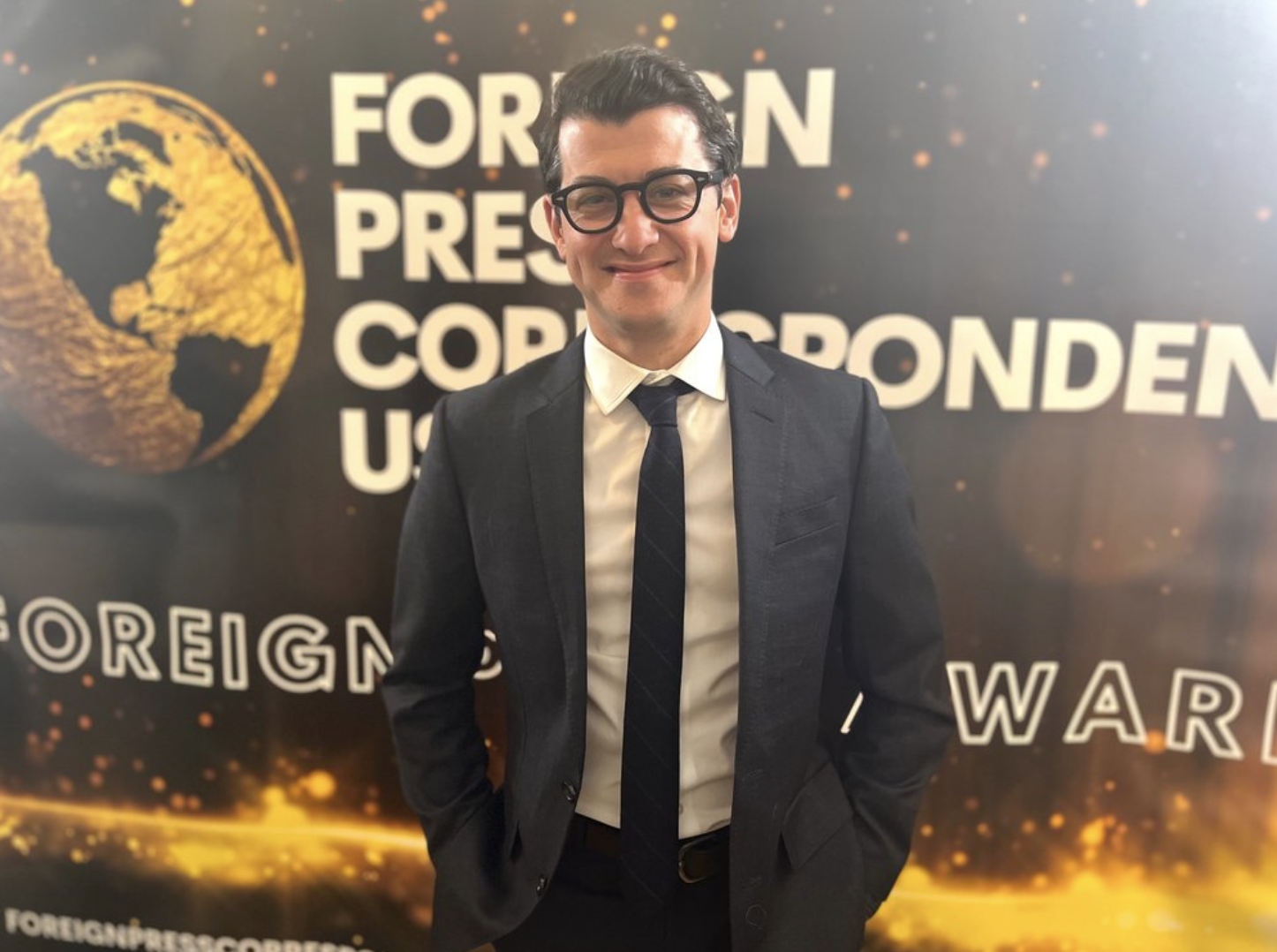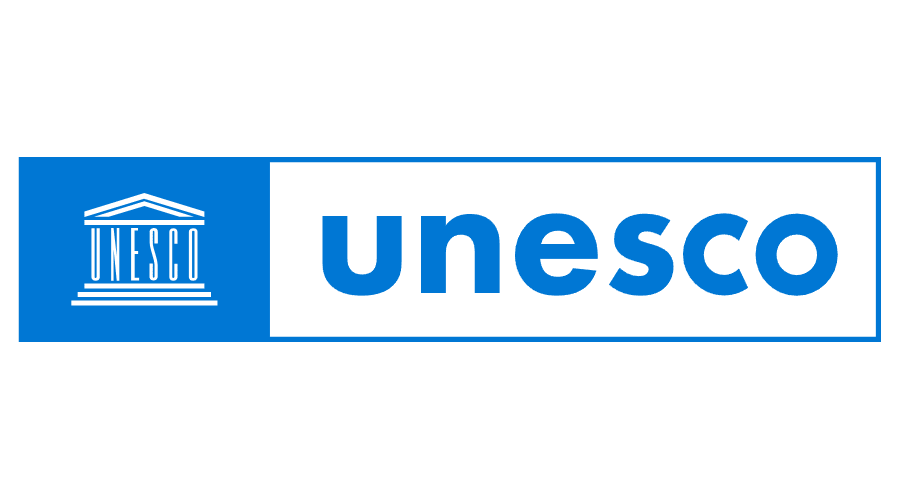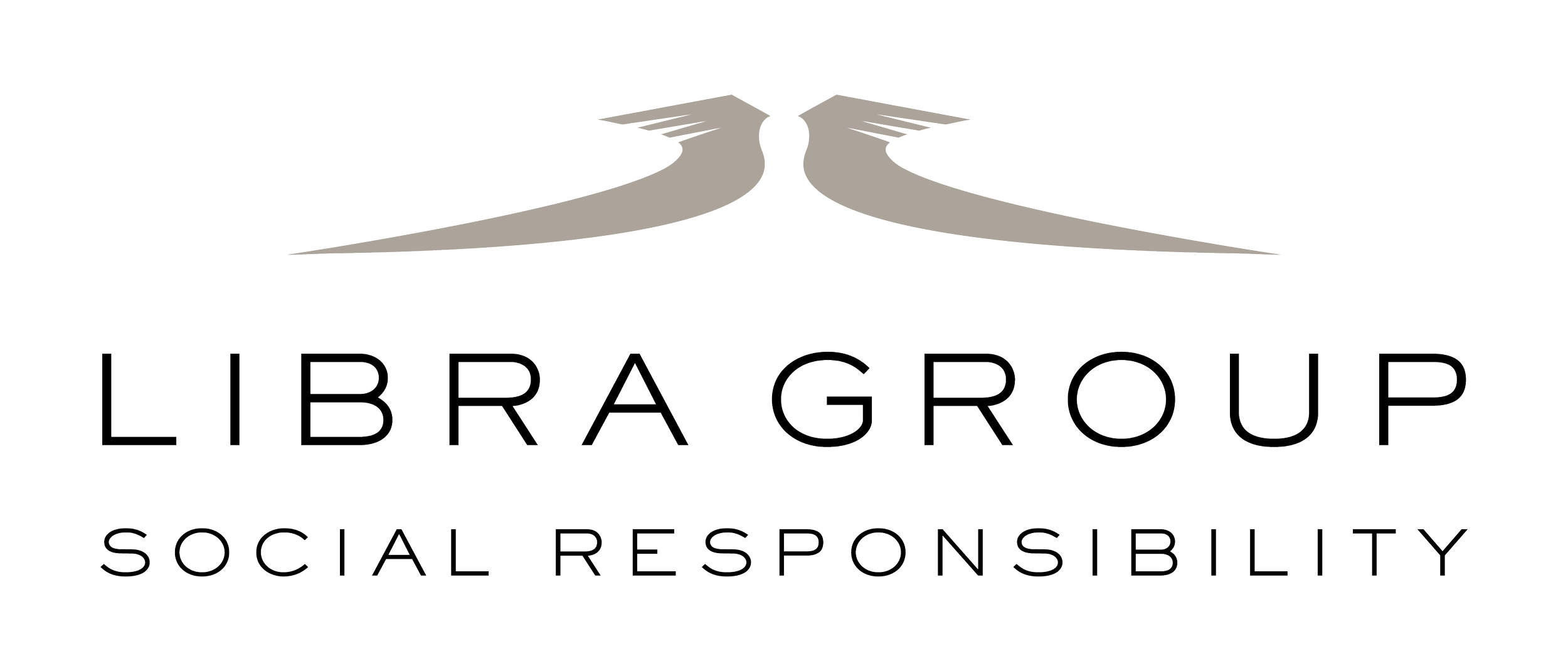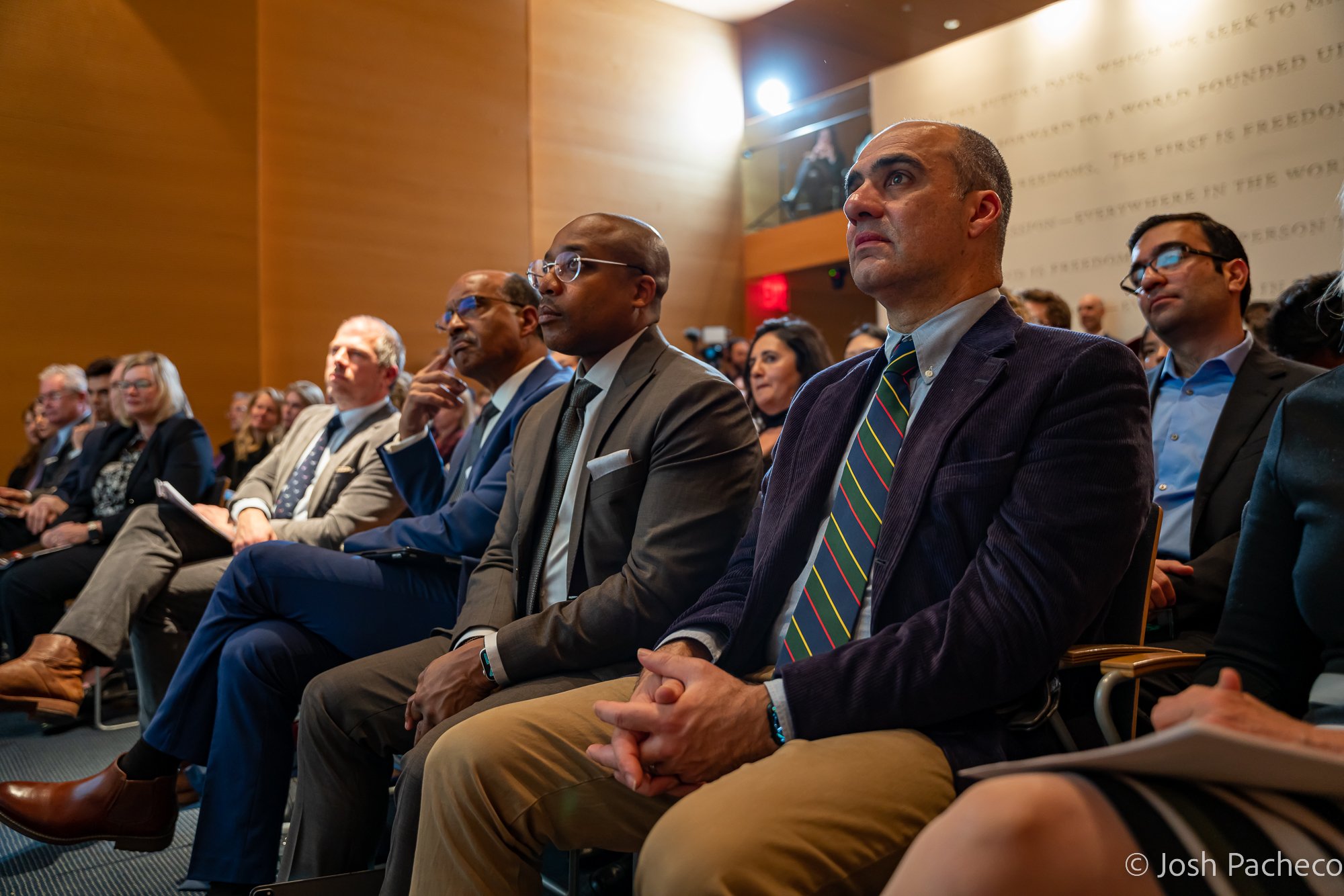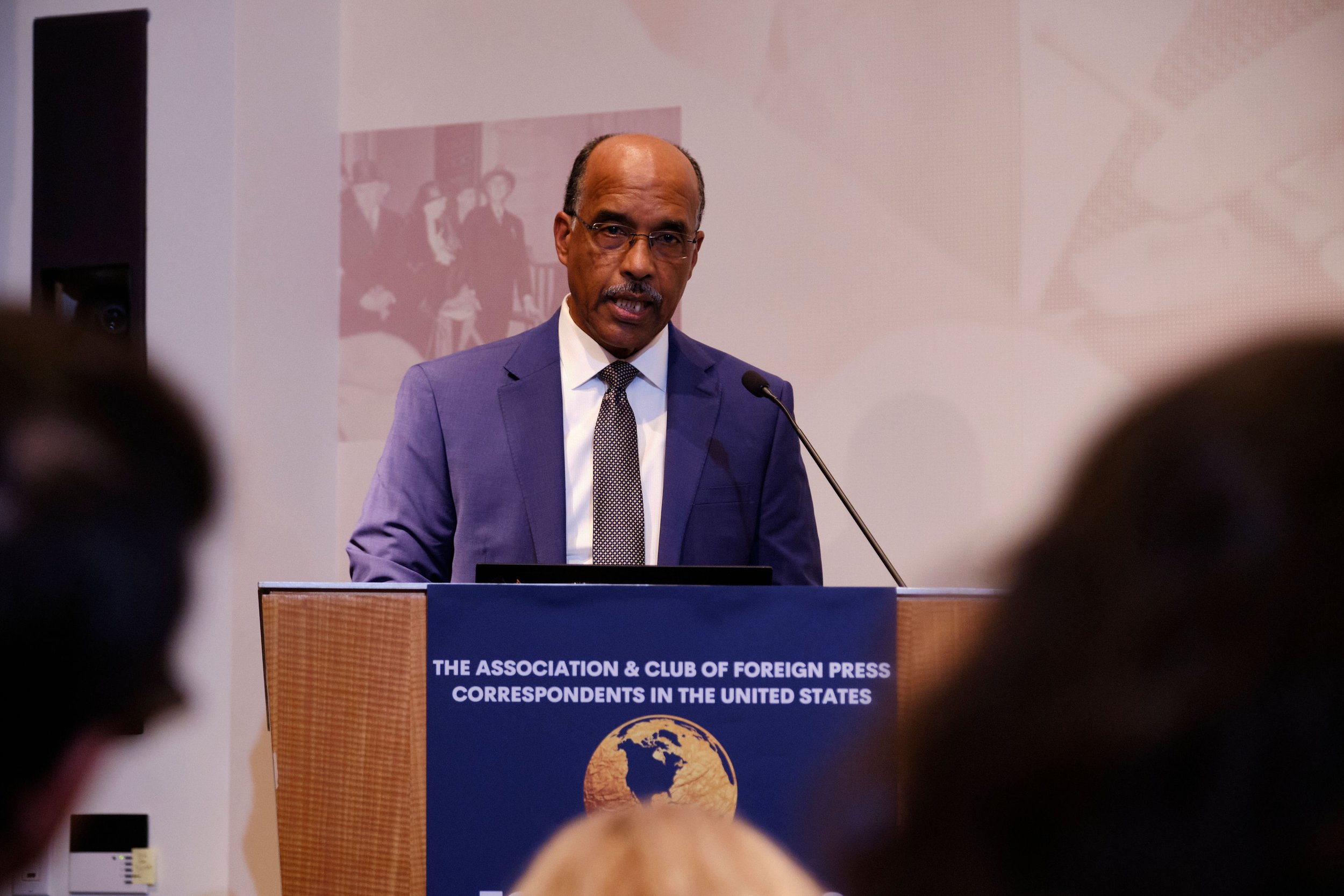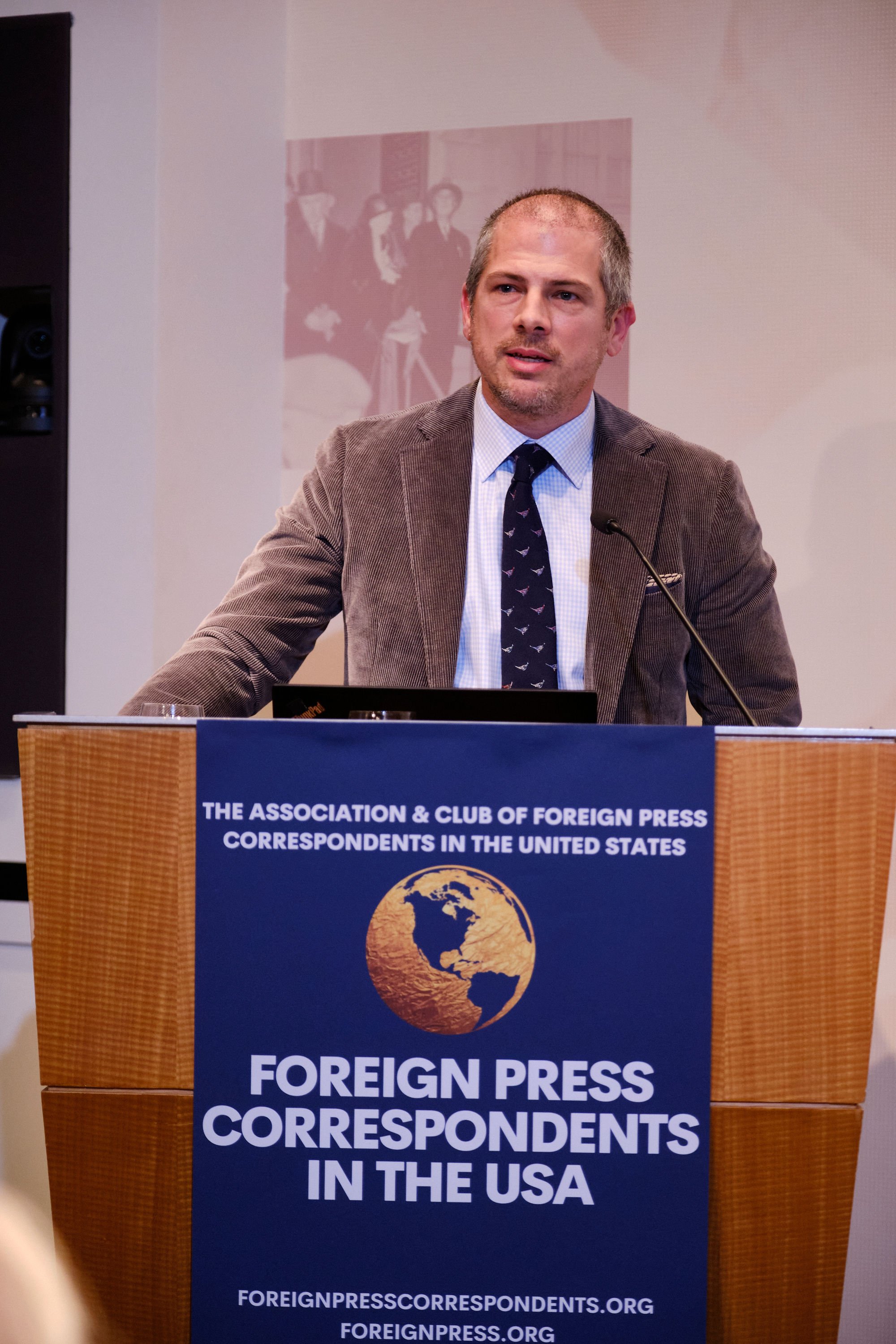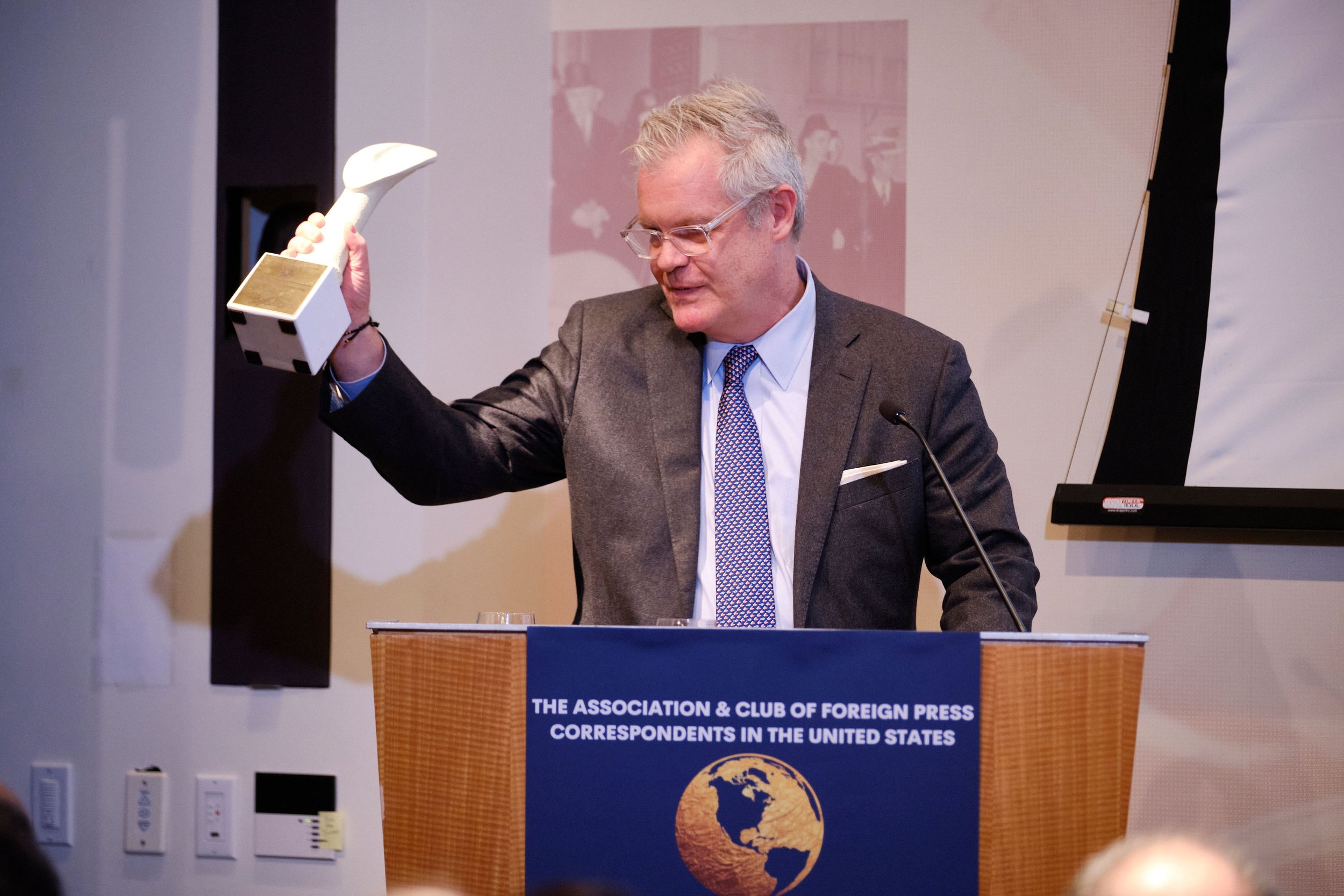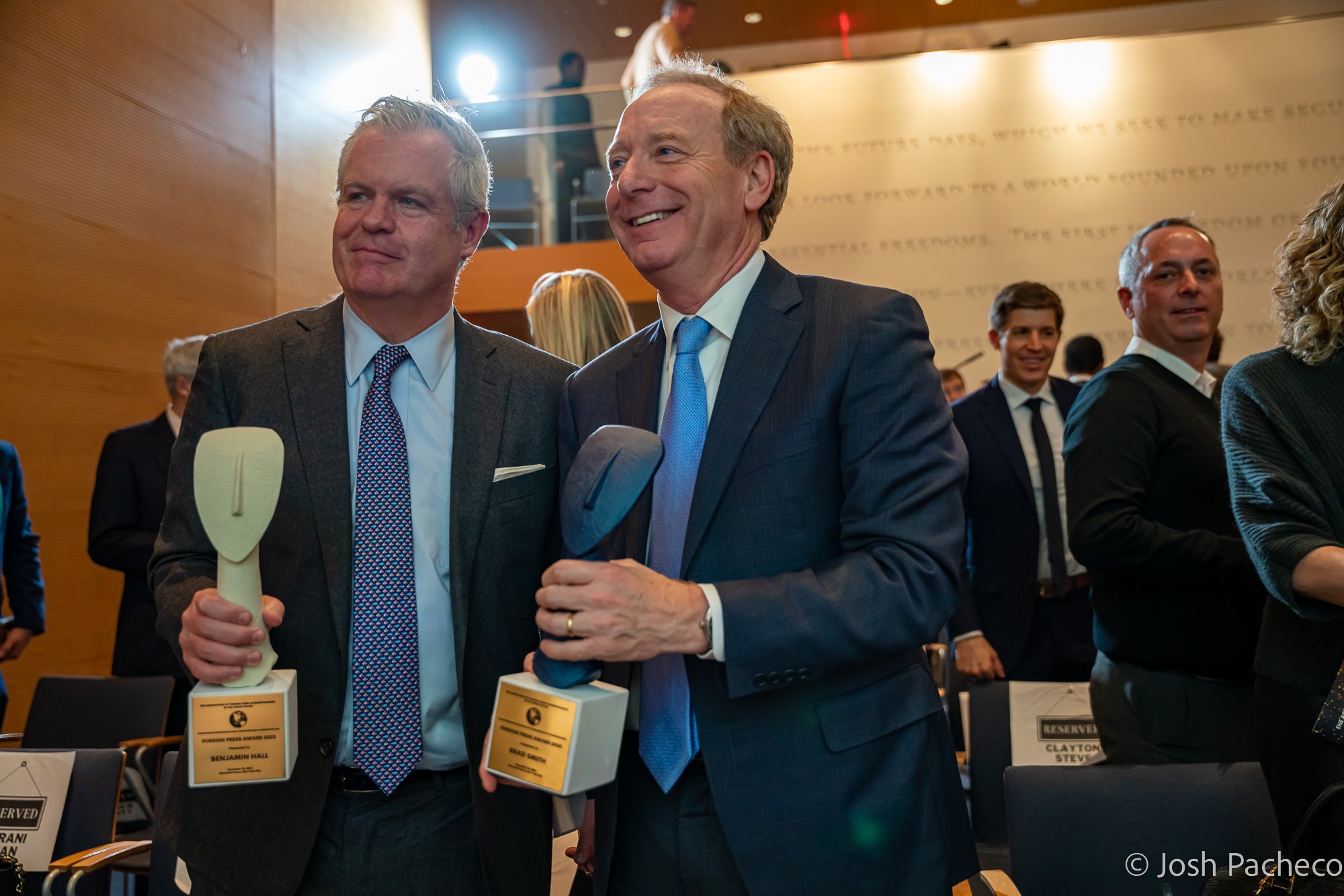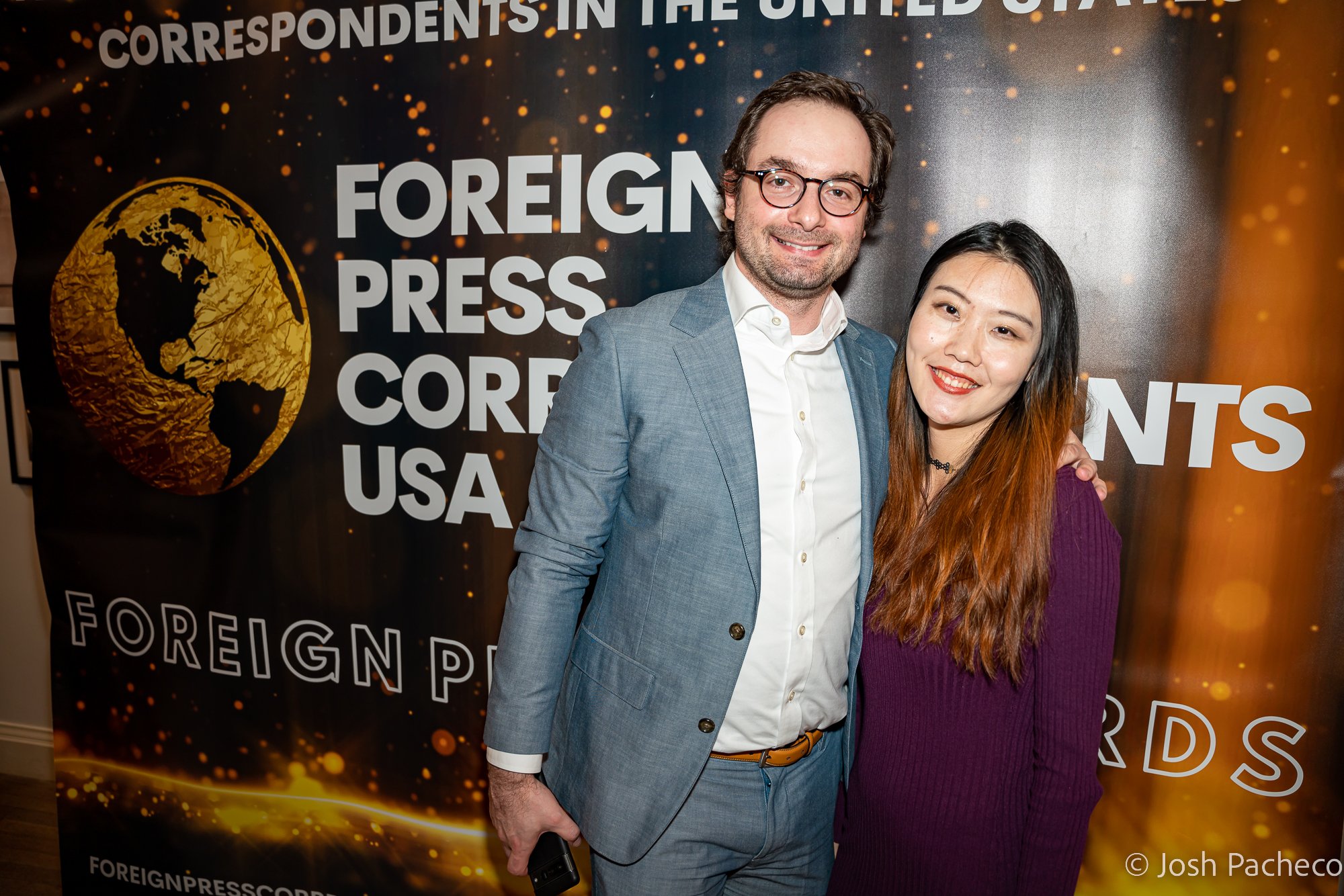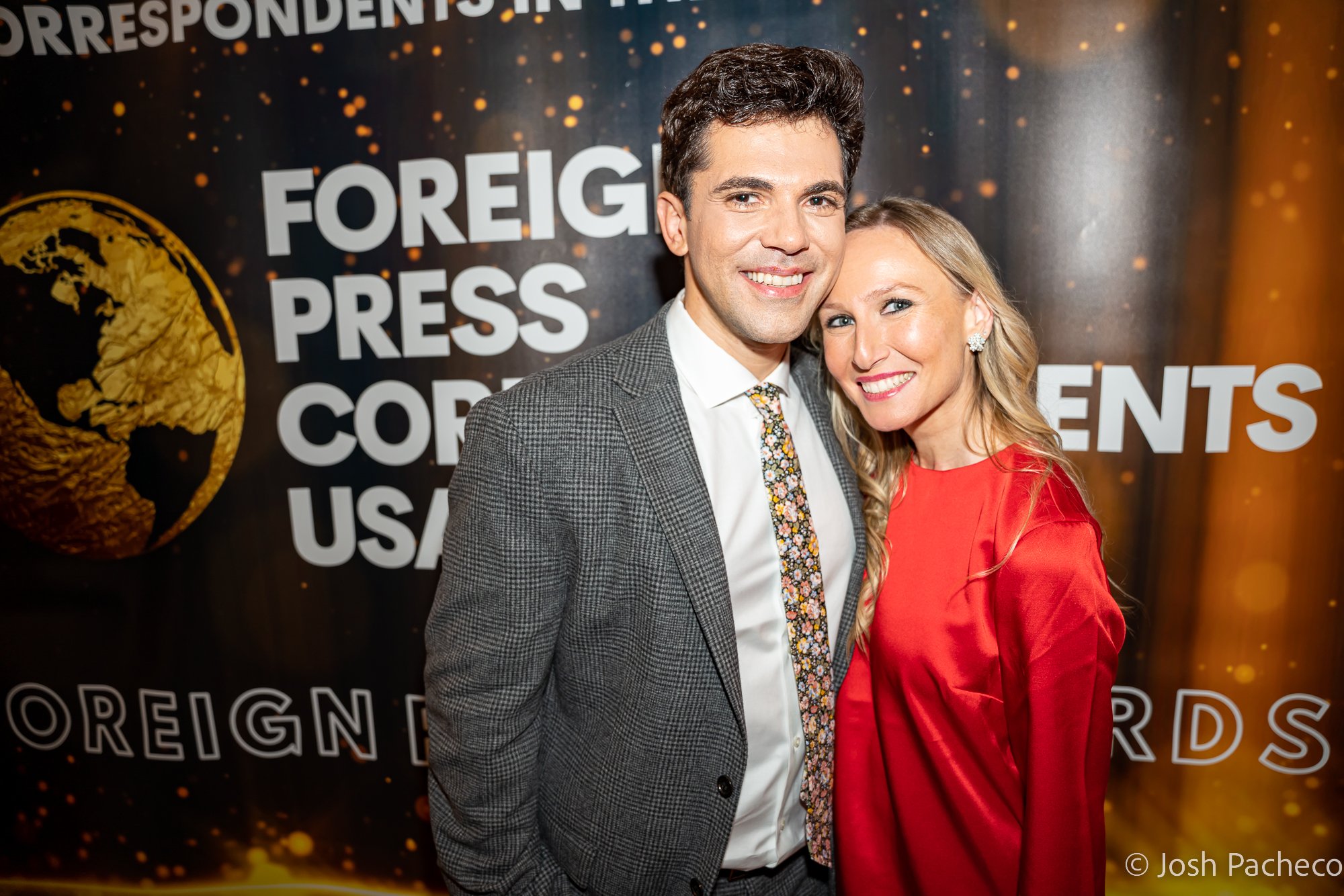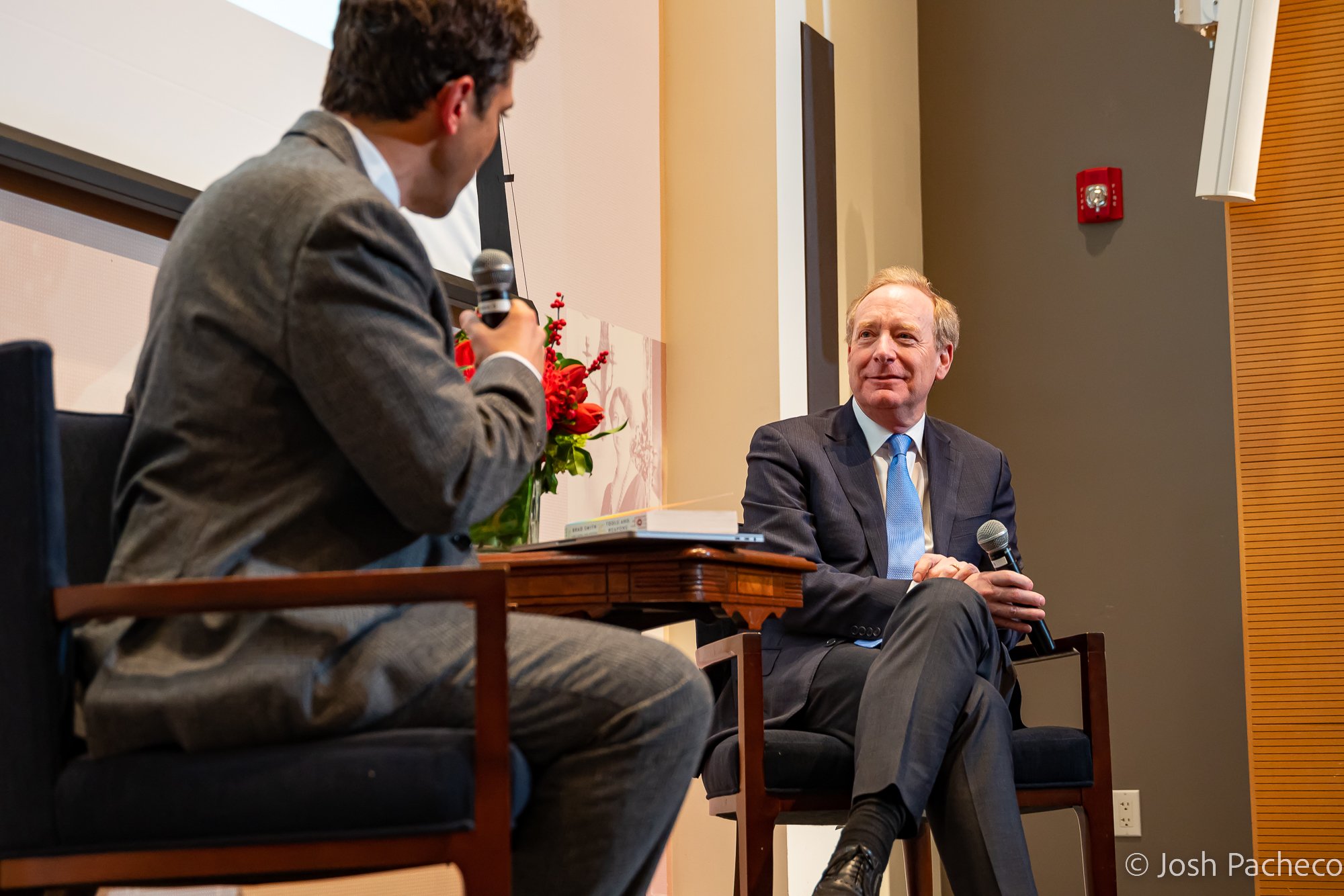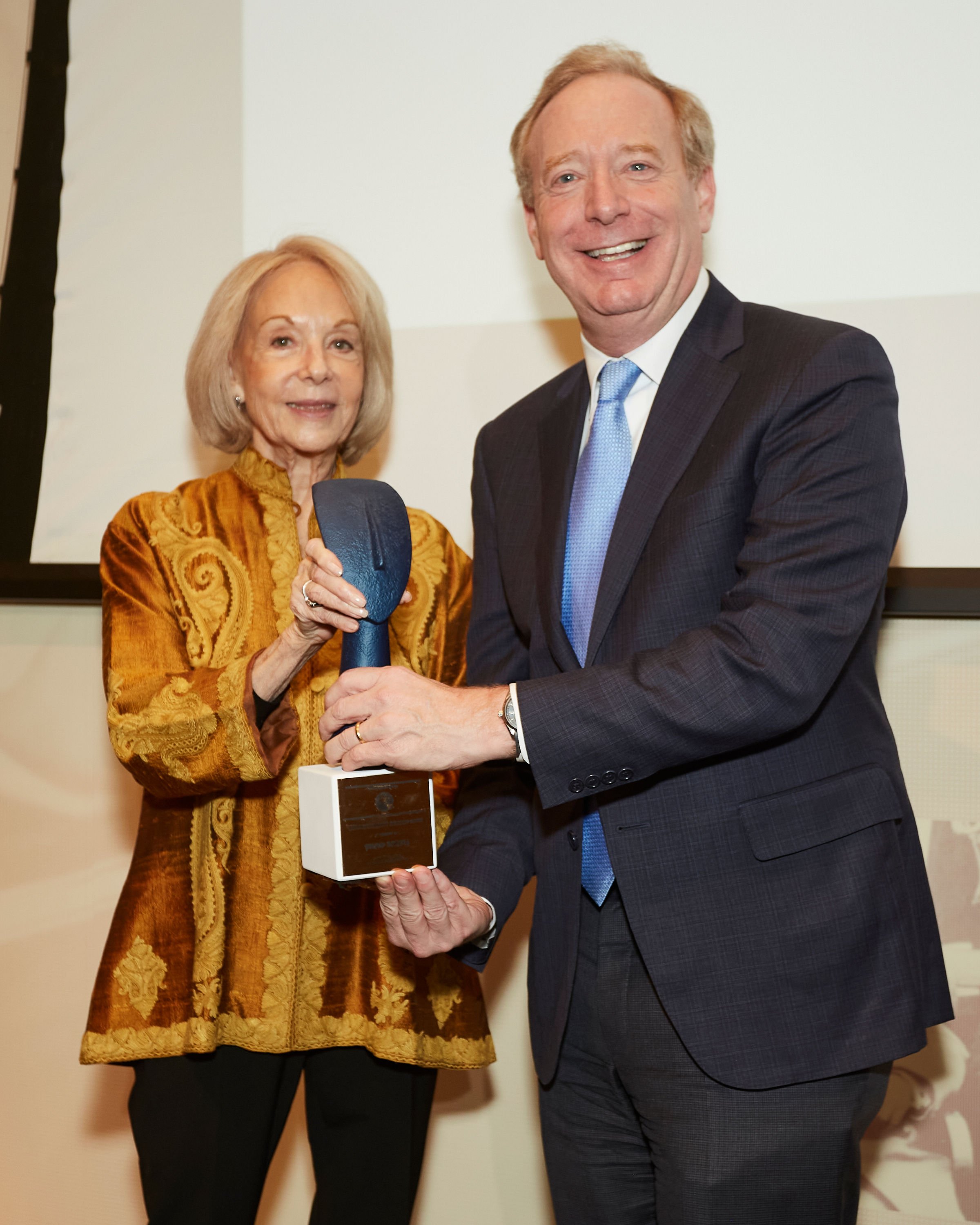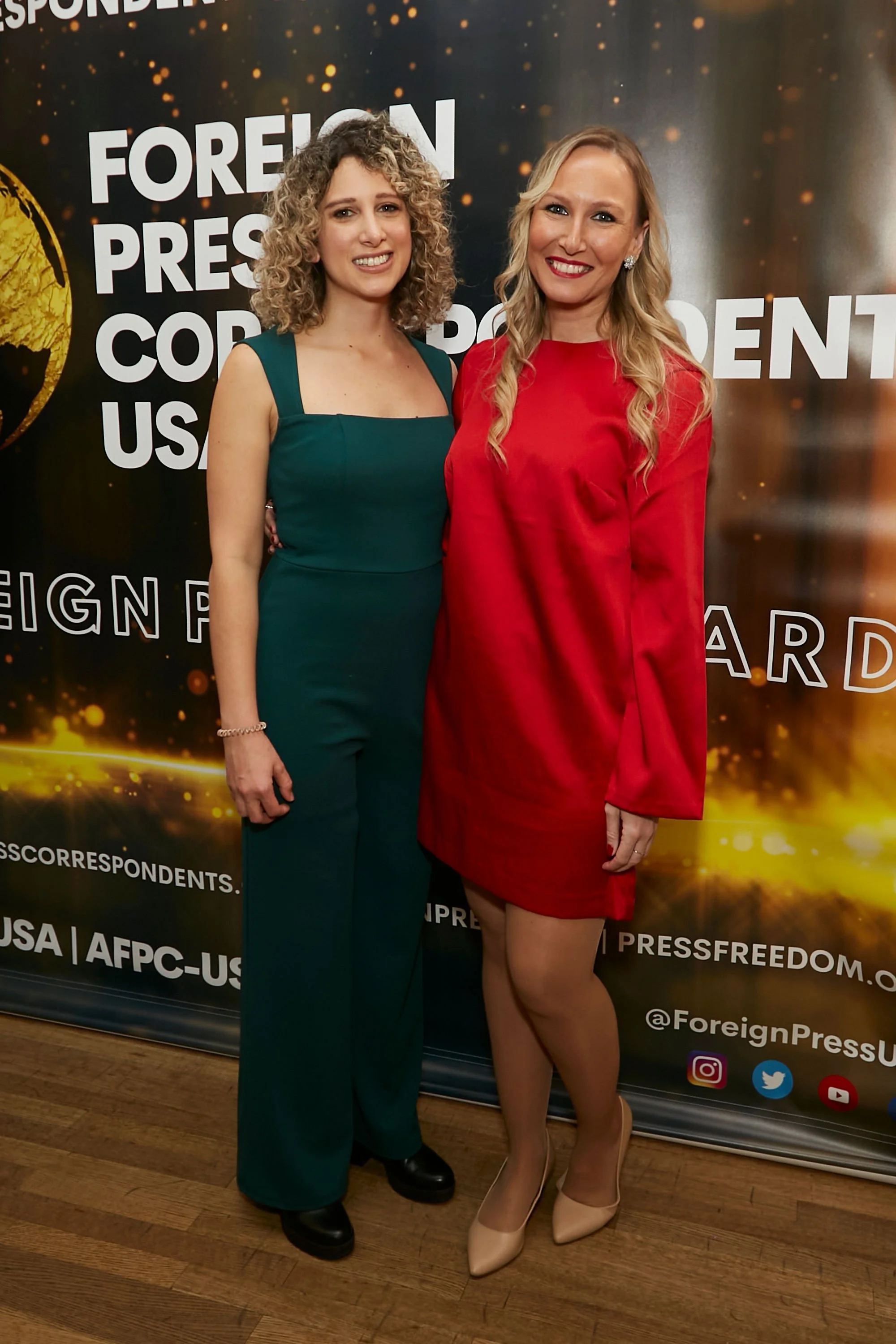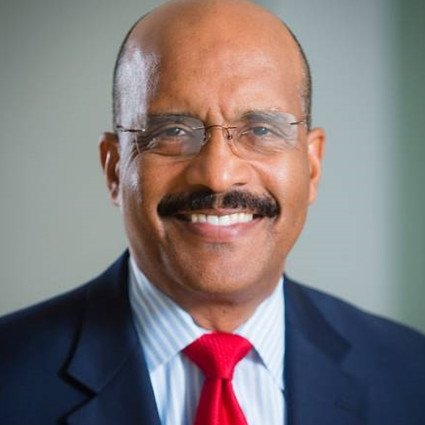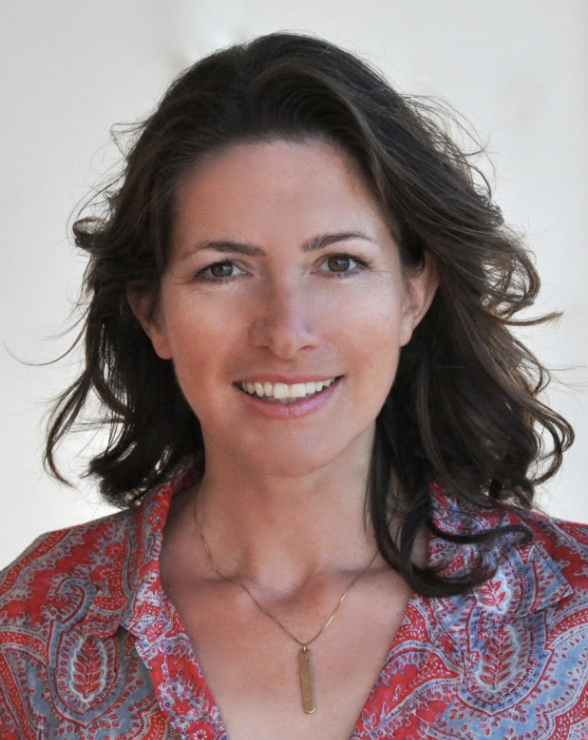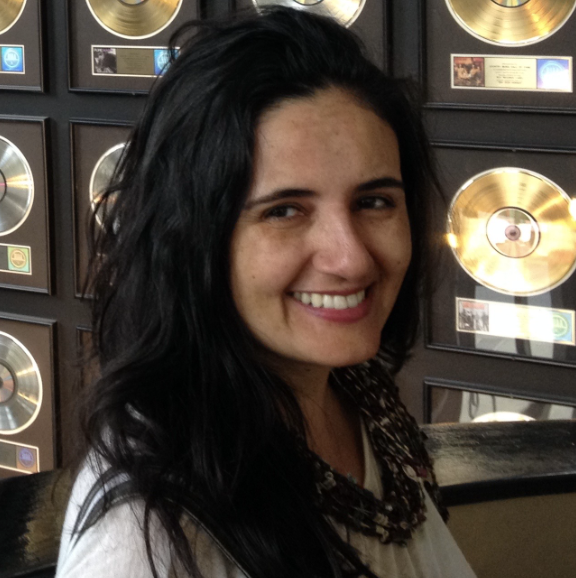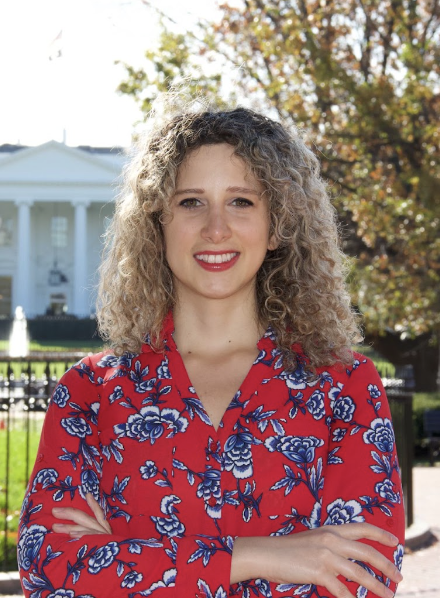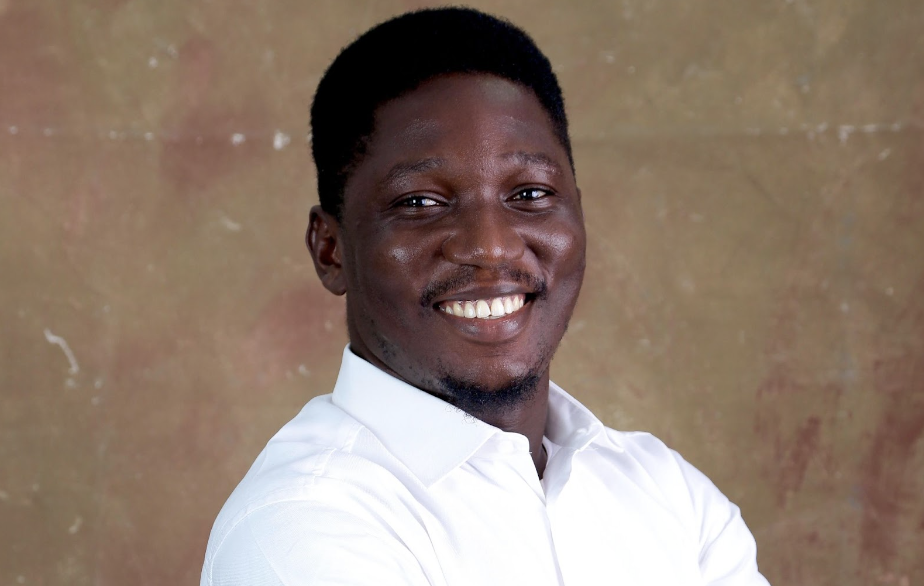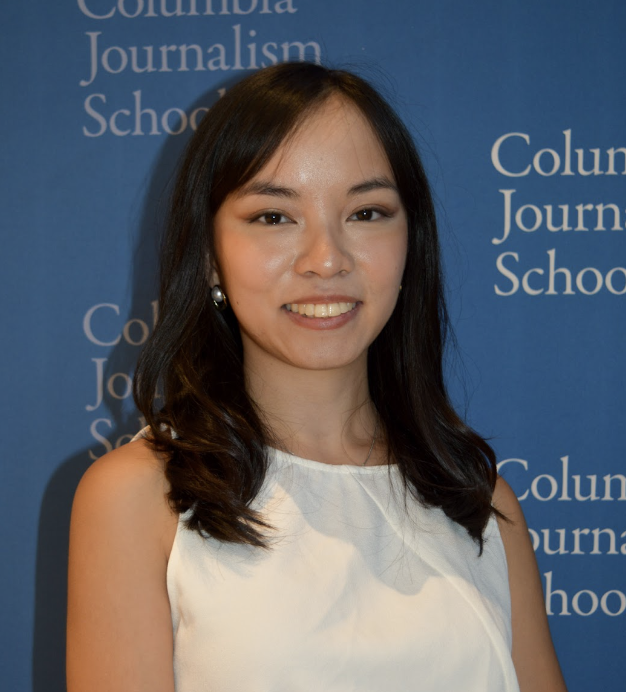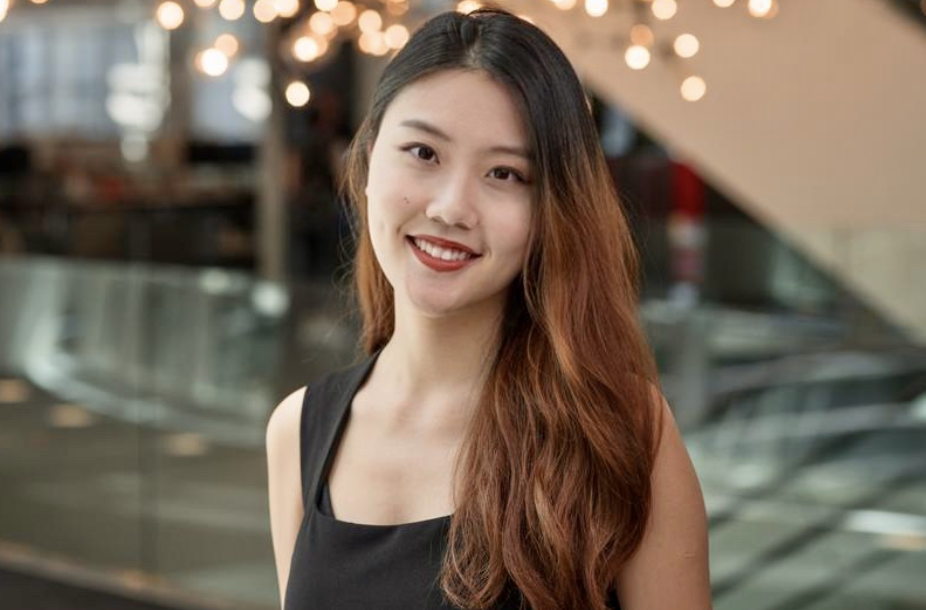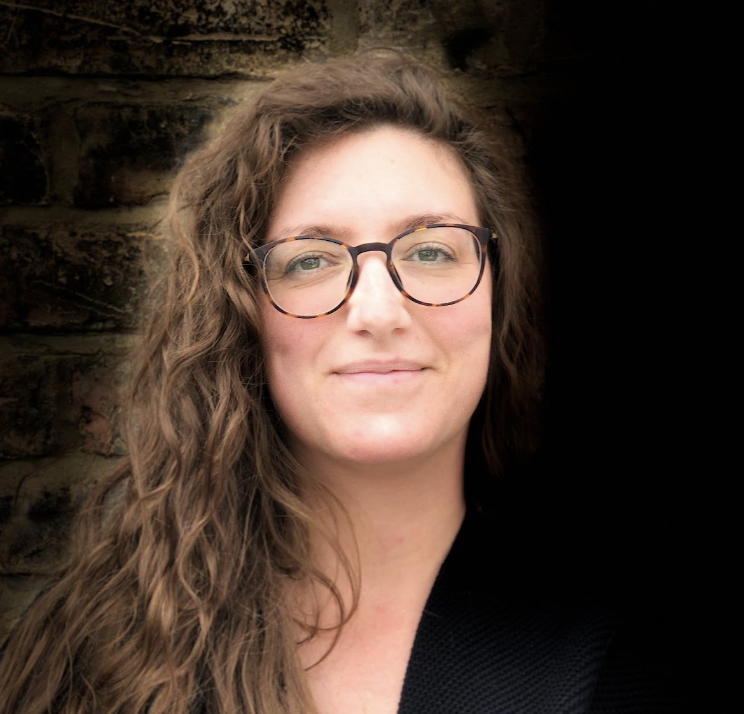FOREIGN PRESS AWARDS BOOKLET
Click HERE to download the online version the Annual Foreign Press Awards Booklet 2022
2022 FOREIGN PRESS AWARDS
DECEMBER 15, 2022
ROOSEVELT HOUSE, NEW YORK
NEW YORK — The Association of Foreign Press Correspondents-USA (AFPC-USA) hosted the 2022 Foreign Press Awards in New York City on Thursday, December 15, 2022, to honor prominent international journalists, impactful industry luminaries, and promising foreign journalists who may impact the field in coming years.
Foreign correspondents from around the world, AFPC-USA board members, and supporters gathered to honor the winners, including the three honorary foreign press awardees: Microsoft Vice Chair and President Brad Smith, Fox News State Department Correspondent Benjamin Hall and NBC News Political Director and moderator of “Meet the Press” Chuck Todd.
The Foreign Press Awards and Party evening took place in person for the first time since December 2019 at the Roosevelt House, a public policy institute at Hunter College honoring the legacy of Franklin and Eleanor Roosevelt. International journalists and guests came together for cocktails and hors d’oeuvres, and seasoned reporters from Belgium mingled with scholarship recipients from New Zealand before an excited audience filed downstairs to begin the night’s ceremonies.
AFPC-USA board members spoke of challenges facing journalists today, and executives representing corporate donors helped introduce the seven 2022 scholarship winners (with two from China and the rest from India, Nigeria, the Philippines, Sweden and New Zealand) and five professional excellence awardees (from Brazil, Canada, Germany, Iran and Venezuela).
AFPC-USA 2022
Scholarship & Professional Excellence Awardees
Sissel McCarthy
"Tonight is an opportunity to celebrate the important work foreign journalists, and indeed all journalists, are doing around the world in one of the most challenging environments for the news industry and press freedom," observed AFPC-USA Board Member and evening host Sissel McCarthy, Distinguished Lecturer and Director of the Journalism Program at Hunter College.
“When Pew Research center asked 12,000 journalists to describe their industry in a single word this year, nearly three-quarters of them said something negative,” she added, going on to list hardships that journalists in the U.S. and around the world are facing: Public trust in the media, particularly in the United States, is near an all-time low; 57 journalists have been killed in 2022 alone, and a further 533 have been imprisoned for their work; over 360 newsrooms have closed since the beginning of the COVID-19 pandemic.
"It’s an enormously challenging and precarious time for the news industry,” McCarthy continued, “and thus, I would argue, the perfect time to reimagine the journalism of the future. This means a new approach to both support and reinvigorate the news industry.” McCarthy contends that news organizations need to retool for the digital age and diversify newsrooms. She also called on journalists to prove journalism is not partisan and practice journalism without fear or favor to restore the news industry’s credibility.
Finally, McCarthy shared that most journalists would never consider any other job. According to the same Pew Research survey, journalists report a high degree of satisfaction and fulfillment in their work, with almost 80 percent saying they would pursue a career in journalism again.
“We must never forget what an honor and privilege it is to be a journalist, to serve the public, to hold power to account, to be a guardian of democracy,” said McCarthy.
McCarthy expressed gratitude to all the supporters and partners of the Association of Foreign Press Correspondents: "We especially want to thank Unesco, the Knight Foundation, the Hinrich Foundation, Bayer, WeWork, PepsiCo, Microsoft, Toyota, Volkswagen, Procter & Gamble, General Motors, Libra Group Social Responsibility, Nasdaq, our own Mitzi Perdue, FOX News, CNN, NBC, ABC, CBS and last, but not least JPMorgan Chase which is sponsoring our reception tonight. We could not be more grateful for your support," said McCarthy.
Supporters and partners of the Association of Foreign Press Correspondents (AFPC-USA)
Nancy Prager-Kamel
Nancy Prager-Kamel, Chairwoman of the Association & Club of Foreign Press Correspondents in the USA, also welcomed the gathering and declared, “The state of our journalist and the foreign correspondents’ community continues to be powerful and healthy. Our awardees embody the best practices in journalism and success in their work. Our professional excellence awardees were chosen from a large pool of applicants who represent the highest standards in journalism worldwide. Our scholarship winners clearly excel at their craft.”
In a letter to the AFPC-USA marking the occasion, Guilherme Canela, UNESCO Chief of Freedom of Expression and Safety of Journalists, wrote, “Every ceremony to acknowledge the fantastic work journalists do to keep an independent, free and pluralistic media alive and vibrant, should also be a tribute to all those brave men and women who faced and are facing the most terrible conditions -- sometimes, paying the ultimate price – to bring the facts into the daylight.”
Respect for the work journalists do around the world was heard by every speaker.
As the program began, the AFPC-USA announced the group has opened two new offices in New York and Washington, DC, through a partnership with WeWork.
McCarthy then welcomed Errol Williams, WeWork’s Senior Vice President of Community and Asset Management for the United States and Canada, to say a few words. “I truly, truly…am honored to join in celebrating you,” Williams said. “I’m also excited to celebrate the Foreign Press Correspondents Association in the United States for the critical work that you do to create a world that is not only connected and informed but improving and growing.”
Williams also reflected on how AFPC-USA’s goals are aligned with the journalists it was now supporting: “WeWork was founded on the very principle that we are better and stronger if we work together. Just as journalists share information that unites and informs our society, WeWork strives to provide workspaces that inspire new ideas and foster a global community."
Williams and WeWork’s commitment to provide AFPC-USA with two new office spaces and to support journalists with a place for their “courageous” work was applauded heartily by the audience.
Errol Williams
Next up was Krista Pilot, the Senior Vice President of External Communications and Strategy for PepsiCo. “One of the reasons that we at PepsiCo support journalists and the AFPC-USA specifically is that we have a shared commitment to transparency and learning,” she said, pointing to AFPC-USA and PepsiCo’s upcoming partnership to increase knowledge and information sharing on sustainability, noting that the company has made a commitment to tackle issues such as waste management, regenerative farming, greenhouse gas reductions, and climate change mitigation.
"Journalists will continue to hold us accountable. Sometimes we don't like it, but that's part of the process," continued Pilot, who went on to present a Professional Excellence Award to Canadian journalist Willy Lowry for his work covering wars. Lowry hails from Canada but is well known for his work in the Middle East as a multimedia producer in Abu Dhabi, UAE, as well as for covering the fall of the Islamic State in Syria, protests in Lebanon, and Easter Bombings in Sri Lanka. As a senior correspondent for The National in Washington D.C., Lowry’s connection to the international community and commitment to truth in the face of adversity earned him the AFPC-USA award for Professional Excellence.
Afterward, Kirit Radia, Director of International News for ABC, took the podium. Radia, who has worked for ABC for 17 years, commented on the state of the news today. “As I find myself saying more and more often in newsrooms, the world is getting crazier, and we aren’t immune from that here in the United States,” he said, bringing to mind statistics from Reporters Without Borders (RSF) and the Committee to Protect Journalists (CPJ) that show a record number of journalists around the world have been imprisoned simply for doing their work.
“To put it bluntly, we need all of you,” he said. “In a past life I also was a foreign correspondent. I was based in Moscow at a time when Putin returned to the Kremlin amid unprecedented protests in the streets… and across the country. It was the highlight of my career, and I recognized how important it was not just to get the political story right, but to faithfully represent the story of the Russian people and explain their culture and perspective to the American audience. It is that vital role that you all play here.”
Radia presented the award for Professional Excellence to Kourosh Ziabari. Ziabari, an award-winning journalist from Iran who is an Asia Times correspondent, is well known for pieces that have appeared in publications as diverse as Foreign Policy, Al-Monitor, The National Interest, openDemocracy, and an assortment of others throughout the Middle East. Ziabari reaffirmed his commitment to his journalistic mission after receiving the award: “Thank you AFPC-USA for selecting me as the recipient of the 2022 Professional Excellence Award,” he tweeted. “I will continue doing my best so that reporting on Iran and the Middle East is factual, and to ensure informed audiences can make informed choices.”
Afterward, George Svigos, the executive director of communications for General Motors International, presented the next Professional Excellence award to two journalists for their exceptional work: "We're really privileged at General Motors to be acquainted with this organization. I hope everyone in this room really understands the power of what you do. When I see the work people are doing in frankly terrifying environments... it is a tremendous service to your communities."
The first was Brazilian journalist Alessandra Corrêa, who has spent ten years as a correspondent in the United States, writing about issues as diverse as immigration, criminal justice reform, reproductive rights, and elections. “The fact that the Association and Club of Foreign Press Correspondents (AFPC-USA and AFPC-USA Club) offer us this community where we can exchange ideas with other journalists from around the world who are here doing the same job, is very important,” Corrêa wrote upon accepting her award.
The second award was presented to Venezuelan journalist Valeria Massarelli, who works for the international cable news network NTN24 and is also the senior producer of Naim, which analyzes world trends from media trust to fashion and everything in between. “Organizations such as the Association and Club of Foreign Press Correspondents allow us to connect with people in the same hustle as us,” Massarelli wrote later. “The ACFP-USA Club has allowed me to connect with colleagues who have had the same struggles, victories, and challenges as me, which has helped me greatly during my career.”
Sue Ann Pentecost, head of Integrated Strategic Communications for Bayer, USA, was next. She addressed the scholarship and award recipients in the room as "the very best and brightest that the journalism field has to offer.”
“We are especially pleased that through Bayer’s support that foreign journalists have the opportunity to study, work and live in the United States,” she said. “As a global life sciences leader, Bayer supports every opportunity to reaffirm our long-standing commitment to freedom of the press and freedom of speech,” she added, noting that major events like the ongoing war in Ukraine and the reversal of Roe v. Wade in the United States have demonstrated that journalists are more important than ever before.
Pentecost honored Michaela Haas of Germany with the final Professional Excellence award of the evening. Haas works as a freelance correspondent on the West Coast for international media and is a columnist for Süddeutsche Zeitung. Her work has appeared in the New York Times, Al-Jazeera, and The Huffington Post in the United States. “I’m truly honored and grateful for my work being recognized by the AFPC-USA,” she wrote. “Working as a freelance correspondent has become more challenging during the pandemic because of budget and travel restrictions, and I’m grateful for your support.”
Pentecost remained at the podium to award the first AFPC-USA scholarship of the evening to Nigerian journalist Segun Olakoyenikan, who is currently pursuing an M.A. at New York University’s (NYU) Arthur L. Carter Journalism Institute. After working as a finance columnist for the Nigerian newspaper BusinessDay, he went on to work for a wire service where he routinely debunked COVID-19 misinformation. Olakoyenikan’s reputation as a rigorous fact-checker led to him being honored in 2021 for his efforts to fact-check a falsified report from the European Union (EU) about child abductions in Nigeria. “I am very excited and indeed honored to be awarded a scholarship from the Association of Foreign Press Correspondents (AFPC-USA),” he wrote later. “Studying in New York as an international student poses a major financial burden, and I was not exempted in any way. Knowing I have a scholarship that covers my expenses in the city is such a relief."
Ed Lewis, Director of Public Policy Communications for Toyota Motor North America, joined the chorus of corporations supporting journalism this evening. "I can say without question that we are honoring an exceptional group of journalists. Toyota supports the basic principles of a free and fair press… we know that reliable, accurate, unbiased journalism helps protect our basic freedoms and the values that we all share,” he said, adding that Toyota’s goals were in line with AFPC-USA: “These essentials define who we are, and underline the scope of our shared humanity.”
Lewis presented two scholarships on Toyota’s behalf to Kaela Malig of the Philippines and Diana Li of China.
Malig is an award-winning multimedia journalist currently pursuing an M.A. at Columbia University’s Graduate School of Journalism. Although only 24, she has already won her fourth award from the Society of Publishers Asia (SOPA) Awards for Editorial Excellence. While writing in the Philippines, Malig covered social issues, focusing on women’s rights and child welfare. She has worked with The Washington Post, CNN, and the Philippines’ biggest news organization, GMA Network. “The Association’s generous scholarship allows me to pursue my master’s degree in journalism at Columbia,” she said. “It also gives me an amazing opportunity to be surrounded by an incredible network of journalists whose wisdom I’ll keep to heart.”
Diana Li is a New York-based financial journalist, currently pursuing dual degrees from NYU’s Arthur L. Carter Journalism Institute as well as the Stern School of Business. Li has interned at the Beijing bureau of The Wall Street Journal, The Financial Times, Reuters, and Bloomberg News in New York. "I feel super honored and grateful to the Association of Foreign Press Correspondents (AFPC-USA) for giving help to U.S.-based foreign journalists at a difficult time when inflation and a stronger dollar make lives for us foreign journalists living in the U.S. financially challenging,” Li said.
Damon Jones, the Chief Communications Officer of multinational consumer goods manufacturer Procter & Gamble, was next up, and he honored award and scholarship recipients with a few thoughtful words. "On behalf of Procter & Gamble, I would like to congratulate all of you... The images you put out into the world, the stories you tell... have the power to document history as it is, not how we want it to be,” he said.
Jones presented two journalists with awards, the first being Shone Sateesh, a multimedia journalist from India with more than ten years of experience. Sateesh is currently pursuing a Master’s degree at Columbia University’s Graduate School of Journalism, focusing on long-form narratives. Sateesh rose to prominence in India in large part because of his critical coverage of the country’s caste system and its intersections with human rights and policy. His work has appeared in Al Jazeera, DW.com, The Straits Times, Livemint, Scroll.in, and Firstpost.com. “It is incredibly thrilling, humbling, and an honor to receive the Association of Foreign Press Correspondents (AFPC) scholarship award,” he wrote. “As a journalist from a marginalized caste from a developing country like India, the recognition reinforces my resolve to continue reporting on under-reported stories about underserved communities.”
China’s Yucheng Tang was the next scholarship recipient. Tang, who grew up in a rural environment before pursuing a journalism degree in Shanghai, has become known for exploring ideas that intersect technology, science, humanity, and the lives of Asian immigrants in the United States. He has worked for The New York Times, where he profiled a group of Chinese student filmmakers exploring transgender issues. Tang thanked the AFPC-USA for “fueling my courage during the transition from my early career to [the] next stage” and says he aims to “tell good stories from both sides” of the U.S.-China relationship, which is currently fraught.
The last executive speaker, Cameron Batten, Vice President and Chief Communications Officer of Volkswagen Group of America, noted that the AFPC-USA’s policies and approaches to journalism were similar to Volkswagen’s own commitment to transparency. “I will tell you that Volkswagen believes in great storytelling… we work day in and day out, employing former journalists who believe in freedom of speech and telling great stories,” said Batten. “It’s how we restored trust in our company over the last decade in the USA,” he added.
Batten presented the final scholarships of the evening, the first to New Zealand’s Pete McKenzie, who is currently based in New York. McKenzie has written for The New York Times, The Guardian, and New Zealand publications like North & South and New Zealand Geographic. McKenzie is also a qualified attorney and previously served as an infantry officer in New Zealand's Army Reserve. He is pursuing a Master’s degree in Global Politics from Columbia’s Graduate School of Journalism, where he was awarded a Fulbright scholarship in addition to his scholarship from the AFPC-USA. “The AFPC-USA support means I’ll be able to spend more time focused entirely on deepening my understanding of the world around me,” he wrote. “It also empowers me to work on much more ambitious and complicated projects than I would be able to otherwise, explaining hidden connections that take time, effort, and resources to explore.”
The final scholarship was awarded to the Swedish journalist Anna Westerberg, who has studied and practiced journalism in the United Kingdom and Costa Rica in addition to her home country. She is now pursuing a Master’s degree in journalism at Columbia University’s Graduate School for Journalism. “I am extremely honored that an organization such as the Association of Foreign Press Correspondents (AFPC-USA) recognizes me as a journalist,” she wrote. “It truly spurs me on and makes me even more determined to reach my goals.”
Before those in attendance knew it, it was time to honor the ceremony’s three keynote speakers, the first of which was introduced by AFPC-USA Chairwoman Nancy Prager-Kamel, who celebrated the first in-person awards ceremony since the COVID-19 pandemic. “After the challenging years of COVID, it’s such a pleasure to stand before you and greet you in person,” she said. “That being said, the state of our journalist and correspondent community, as evidenced this evening, continues to be powerful and healthy.”
The three honored recipients, she said, “define directly or indirectly” the tenets of impeccable journalism and represent why AFPC-USA—whose membership comprises a multitude of journalistic talent from all walks of life—continues to serve the United States as “engaged citizens” of contemporary society.
“The 2022 Foreign Press Awards are our annual opportunity to congratulate personalities whose public presence, career, and life have contributed to our cause of informing and educating the public about the essential role foreign journalists and journalists in general play here in the US and around the globe,” Prager-Kamel said. “This year our three Foreign Press Awardees personify the unwavering commitment to keep striving for excellence in communication and elevate sustainable journalism as a successful business model.”
The first of the three keynote speakers and award recipients was journalist Chuck Todd, who is the current moderator of NBC’s Meet the Press and provides on-air political analysis in his capacity as the Political Director for NBC News. Todd was unable to attend the ceremony in person but shared his virtual remarks.
Chuck Todd addressing the AFPC-USA Annual Foreign Press Awards Ceremony
“I’m truly honored to share this moment with other honorees,” said Todd, who expressed his pride as the current moderator of the longest-running television program in the United States. He stressed the importance of “putting international events into context” for viewers of Meet the Press, referring to it as “a core piece of our work” that ultimately benefits the foreign correspondent community. “At a time of immense media skepticism, I am constantly reminded… we don't exist to tell people what they want to hear. We exist, all of us in this room, to tell them what they need to hear,” he said.
Todd also spoke about the question of hosting controversial public figures on the program—and others like it—noting: “Sometimes these objectionable individuals… hold [the] power to make an immense difference in our lives and in the lives of our audience,” adding that such power “needs to be” scrutinized because “sometimes sunlight is the best disinfectant.” “Only by shedding sunlight on apparent wrongdoing, or injustice, or a lack of accountability in our institutions… can we make the stakes real and apparent to the people who need to know,” he said.
“I hope that someone disagrees with something they heard every week or I’m not doing my job,” Todd said. Journalists are in “pursuit of spurring thought [and] encouraging political engagement and discourse,” he added, and that’s “as important as ever on Meet the Press and for journalists the world over covering issues and challenges far beyond the borders of their home countries.”
During the latter half of the Foreign Press Awards ceremony, AFPC-USA’s Executive Director Thanos Dimadis discussed with Brad Smith, Microsoft’s Vice Chairman and President, who attended the event at the Roosevelt House in New York in person. Smith has played a key role in spearheading Microsoft’s work on critical issues involving the intersection of technology and society, and indeed, issues like cybersecurity, privacy, artificial intelligence, environmental sustainability, human rights, immigration, and philanthropy—topics that have a profound impact on the way journalists live and how they conduct their work.
Thanos Dimadis in a conversation with Brad Smith
When asked to define leadership, Smith—whose position as the longest-serving member of the tech company’s top leadership has led to him being considered "a de facto ambassador for the technology industry at large”—said its essence amounts to being “called on, more than anything else, to try and adapt to a changing world.”
“It always starts by taking stock of how the world is changing,” he said, adding that “you then have to ask what it means for what you are trying to do, whether that’s as an individual or as the leader of a company… and then you have to formulate a vision, with other people, and then you have to actually [do it].” Keeping with the evening’s theme, Smith tied his own experiences with leadership back to journalism, saying that the two are inextricably linked by “curiosity.” Journalism, he said, trains people to be curious, o ask questions, find information, especially from other people, and to write well all traits, he said, that are the “most important in the history of humanity, no matter what you do.”
Brad Smith
Attacks on press freedom are always a major topic of conversation during journalistic events, and the awards ceremony was no exception. When Dimadis asked Smith to share his thoughts on threats to press freedom and journalists in the current age, Smith said the three biggest threats he sees facing the Fourth Estate are those that target “physical safety,” “personal liberty,” and “economic well-being.” On that last point, there is no question that journalism at large faces a precarious financial future. Revenue for newsrooms in the United States has fallen year by year since 2000, for instance, resulting in widespread job insecurity for local journalists as well as reductions in the frequency and amount of news available for smaller publications.
“It’s actually starker than just peaking and falling,” noted Smith. “In 2020, that $60 billion [from advertiser revenue] had become $20 billion… but frankly—and this is why it’s somewhat embarrassing to accept an award from a press association—the [advertising] revenue that was going to newspapers is now going to tech companies instead.” He added that the “fundamental problem impacting the American press is, of course, what you do when you cut costs… it has forced newspapers to cut the money [that was going to journalists].”
Indeed, the fact U.S. newsroom employment has fallen by 28 percent since 2008, that wages continue to fall and jobs have become more scarce, and that a once vibrant local news ecosystem has been largely gutted—with nearly 200 counties across the country lacking access to news of any kind—weighed on Smith, who observed that all of these problems begin and end, and are even compounded, by dwindling revenue.
“I think we need to find a way to tap into better and new sources of revenue [over the next decade],” said Smith, who suggested tapping into “public sources of revenue” and finding “more ways to distribute content and bring our [work] to more people” is paramount to journalism’s survival. He said the Netflix streaming model could offer some inspiration for the future of journalism, noting that there has been a resurgence in “streaming [and] new forms of distribution,” ushering in “almost another golden age” that could very well alter the way journalists and news organizations produce content.
The conversation then turned to the role technology has played in allowing misinformation and disinformation to spread, largely unchecked, online. Smith acknowledged this as one of the greater challenges of our time, pointing to the Russian government’s propaganda machine, which with ruthless efficiency, has flooded the airwaves with misinformation and disinformation, much of it designed to obfuscate and falsify the Russian military’s actions during the ongoing war in Ukraine. For instance, one particular disinformation campaign concerned the Pentagon, which Russia falsely accused of funding biowarfare in Ukraine. On that note, Smith said Russia is adept at targeting the United States and Latin America with its disinformation and propaganda. “So how do we address this? You all need to address this,” he said to the room.
Thanos Dimadis in a conversation with Brad Smith
When asked by Dimadis what he would propose to ensure the safety of journalists around the world, Smith said the answer “comes down to protecting the liberty of journalists, as well as protection from other [safety or character attacks].” He said he is “a huge supporter and fan” of the attorney Amal Clooney, who specializes in public international law, international criminal law, and human rights and and won the 2020 Gwen Ifill Press Freedom Award from the Committee to Protect Journalists (CPJ), which promotes press freedom and defends the rights of journalists. “It can shine a light in individual cases and put pressure on a judge, or a prosecutor, or a government to know that the world is watching,” Smith said.“The other thing that it can do… as one can do this with more cases and in more countries, you start to develop the ability to monitor and really measure on an international basis on whether or not journalists [worldwide] actually receive press freedom.”
Near the end of the conversation, Dimadis asked Smith what he’d like to say to the up-and-coming journalists in the room about how he’d evaluate excellence in journalism as a citizen. Smith said that as a public figure who has been the subject of news coverage, it is not uncommon to live in a state of perpetual frustration. That said, he affirmed his support for the quality of news coverage as well as the efforts that people make to be fair.
“I appreciate the tight deadlines people work under, and quite frankly I appreciate it when you come to a place like this, because there’s a lot of jobs you can do from your house…but if you really want to get people to talk to you, you have to go and build some relationships,” he added. “So what you do on an individual and collective basis is just so valuable. At the end of the day, especially for democracies of the world, you really are the Fourth Estate.”
Thanos Dimadis in a conversation with Brad Smith
Smith pointed out that a healthy journalism environment affects democracy, noting that a healthy democracy cannot exist without healthy journalists. “Without the public’s ability to know, to take stock and debate what's true and what’s not… without the kind of reporting you all offer, the future’s lost, in my opinion,” he said, adding that the work journalists do for their respective media outlets is “indispensable to democracy, to the state of humanity around world, and it’s something that should be applauded every day.”
Finally, Dimadis raised the question of artificial intelligence (AI) and how it will affect the journalism landscape going forward. Smith acknowledged that advancements in AI have moved at a brisk pace and will develop quicker than initially expected. As for journalists, Smith said that AI could find and summarize information extremely quickly and even edit pieces for journalists, but that ultimately it could never replace actual journalists. “AI does an amazing job at analyzing the world’s information, but it never has an original thought,” Smith said, noting that a journalist’s talent is in their own unique perspective and original ideas on information, which AI could never replicate.
Following Dimadis’ conversation with Brad Smith, attention turned to the ceremony’s final keynote speaker and Foreign Press Awardee, Benjamin Hall, who works as the State Department Correspondent for FOX News. AFPC-USA Vice President Susan Modaress Tehrani introduced a brief video montage about Hall’s work reporting from the frontlines of several armed conflicts and wars as well as his reportage from inside a Syrian prison holding foreign captives of the Islamic State.
The circumstances that led to Hall’s award exemplify the dangers that can sometimes befall journalists, particularly when attacks against press freedom have become more commonplace and authoritarian regimes are enjoying a resurgence around the globe. In March 2022, Hall was gravely injured in Kyiv while reporting on Russia’s invasion of Ukraine when the vehicle he was traveling in was attacked. Pierre Zakrzewski, a longtime FOX News photojournalist, and Ukrainian journalist Oleksandra “Sasha” Kuvshynova were killed in the attack. Hall later confirmed that he had lost half of one leg and his foot on the other leg, the loss of function in one eye, damage to his hearing, and injuries to a hand as a result.
Benjamin Hall addressing the AFPC-USA Annual Foreign Press Awards Ceremony
Tehrani praised Hall’s work, noting that it has been defined by “a sense of empathy and optimism” that exposes both “the human toll of war and countless stories of individual heroism.” She added: ”His body of work represents the best of our profession – a high calling that shines a light on atrocity, speaks truth to power and gives voice to those who would otherwise not be heard.”
Hall could not make it to the ceremony and expressed his thanks via a pre-recorded video message. And when speaking about the attack that was one of the earliest and among the most high-profile cases of violence against journalists during the Russian invasion, Hall was completely undeterred in his commitment to journalism as an “essential” tool in armed conflict and war zones.
Susan Modaress Tehrani and Jay Wallace
"I do think that this is not just an award for myself. It is an award for Pierre and for Sasha, who both died during that attack, and also for every other war correspondent who has been injured or killed covering conflicts," Hall said. "And despite the attack, despite what happened to us, I think it is essential that people continue telling the news, telling the stories from war. I think that's the only way we truly get to understand the atrocities, the disasters and the horror that's happening out there."
Hall also praised those who have helped him along his road to recovery.
"This is also about celebrating the people who came in to get me and to save me, the people who put me back together, who built me despite all my injuries. And when I look at all those people and what they did, I'm reminded of how much good there is in the world. There was evil there in Ukraine that hurt so many people," he said. "But there is good, and there is more good than there is evil. And we have to continue trying to fight to get that news out as well. People are knocked down. I myself was knocked down. But I know for certain now that you can pick yourself up again, and you can try even harder to do what is so important, to keep telling the truth, to keep telling the stories and encouraging everyone else to do the same."
FOX News Media President and Executive Editor Jay Wallace accepted the award on Hall’s behalf and expressed his gratitude for those who ensured Hall made it home safely while commemorating Zakrzewski and Kuvshinova.
"Ben, he makes it look so effortless. If you watch his reporting, and then you watched him right there, I mean, that's the magic of Ben….I spoke with him last night. Ben sends his best wishes, he hopes to be here next year," Wallace said. “His recovery is going amazingly well. But just a reminder to you young journalists, these are hard jobs. I hope you never have to receive a call like a couple of us received back in March.”
The 2022 Foreign Press Awards ceremony thus concluded.
HONORARY SPEAKERS
EXECUTIVE SPEAKERS
AFPC-USA: PROFESSIONAL EXCELLENCE AWARDEES 2022
Michaela Haas, Ph.D. (GERMANY) is an award-winning reporter and author of four non-fiction books. She is a columnist for the Süddeutsche Zeitung and a freelance West Coast correspondent for international media.
Willy Lowry (CANADA) is a Senior US correspondent at The National in Washington, D.C.
Alessandra Corrêa (BRAZIL) is a a Contributing Correspondent for the BBC Brazilian Service, part of the BBC World Service, in Washington, D.C.
Kourosh Ziabari (IRAN) is an award-winning journalist from Iran and an Asia Times correspondent. He is the winner of the United Nations Correspondents Association Global Prize for Coverage of Climate Change.
Valeria Massarelli (VENEZUELA) is a journalist at NTN24, an international television news network. She is based in Washington, D.C.
AFPC-USA: SCHOLARSHIP AWARDEES 2022
Segun Olakoyenikan (NIGERIA) is pursuing a Master of Arts degree in Business and Economic Reporting at New York University’s Carter Journalism Institute. He was honored with the African Fact-Checking Award for uncovering a falsified EU report on the mass abduction of schoolchildren in Nigeria.
Kaela Malig (PHILIPPINES) is an award-winning multimedia journalist currently taking her master’s degree at Columbia University’s Graduate School of Journalism. After interning for Rappler and graduating with awards for her piece on the Philippine drug war’s orphaned children, Malig went on to work with The Washington Post, CNN, and the Philippines’ biggest news organization, GMA Network.
Diana Li (CHINA) is a New York-based financial journalist, currently receiving journalism education at NYU journalism school and finance education at NYU Stern School of Business. She interned at the Beijing bureau of Wall Street Journal, Financial Times and Reuters, and Bloomberg News.
Shone Satheesh (INDIA) is an award-winning Multimedia Journalist with over 10 years of experience, covering the intersection of caste, human rights, and policy in India. His work has appeared in Al Jazeera, DW.com, The Straits Times, Livemint, Scroll.in, and Firstpost.com. He is currently pursuing an MA at Columbia Journalism School in the Politics cohort.
Anna Westerberg (SWEDEN) is now pursuing her M.S in journalism at Columbia University Graduate School of Journalism. She has practiced and studied journalism in three different countries: with an internship in Costa Rica, a Bachelor’s degree from City University of London, and as a radio broadcast journalist with public service in her home country Sweden.
Pete McKenzie (NEW ZEALAND) is an award-winning journalist based in New York. He writes for The New York Times, The Guardian, and New Zealand magazines like North & South and New Zealand Geographic. He pursues a Master’s degree in global politics at Columbia Journalism School.
Yucheng Tang (CHINA) is studying at New York University’s Literary Reportage MFA program. He was an intern reporter for several publications, including The New York Times, where he profiled a group of Chinese high schoolers who produced a film exploring transgender identity.











